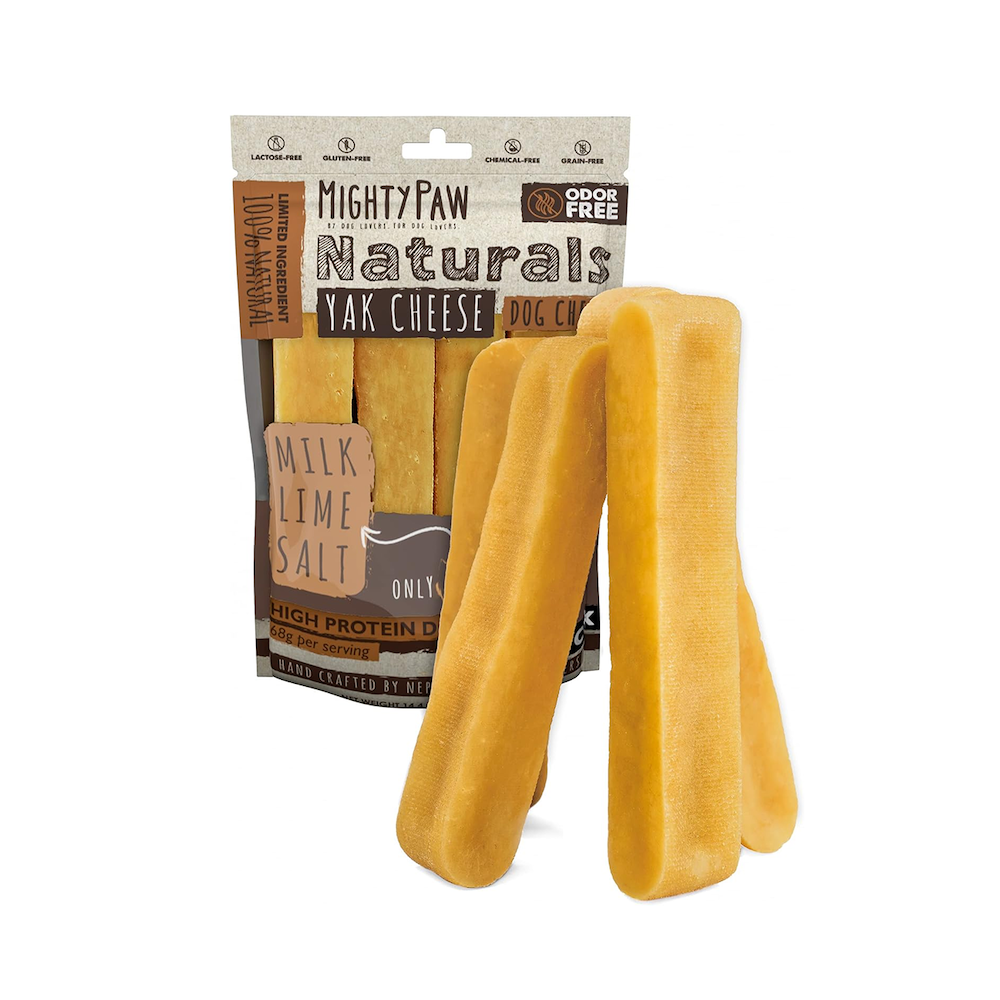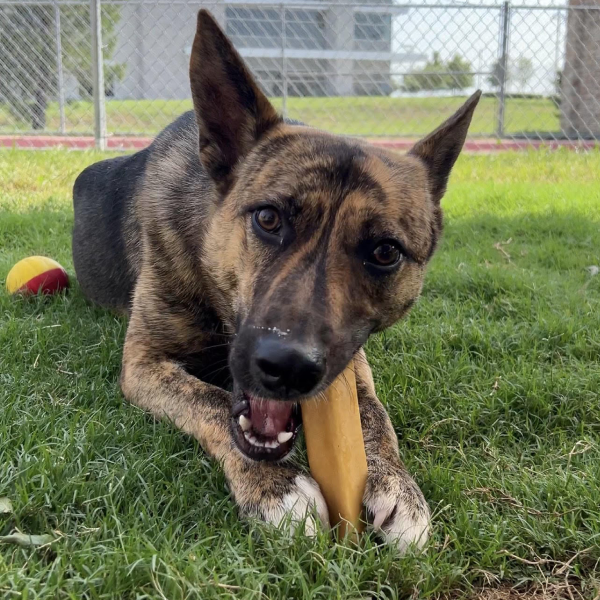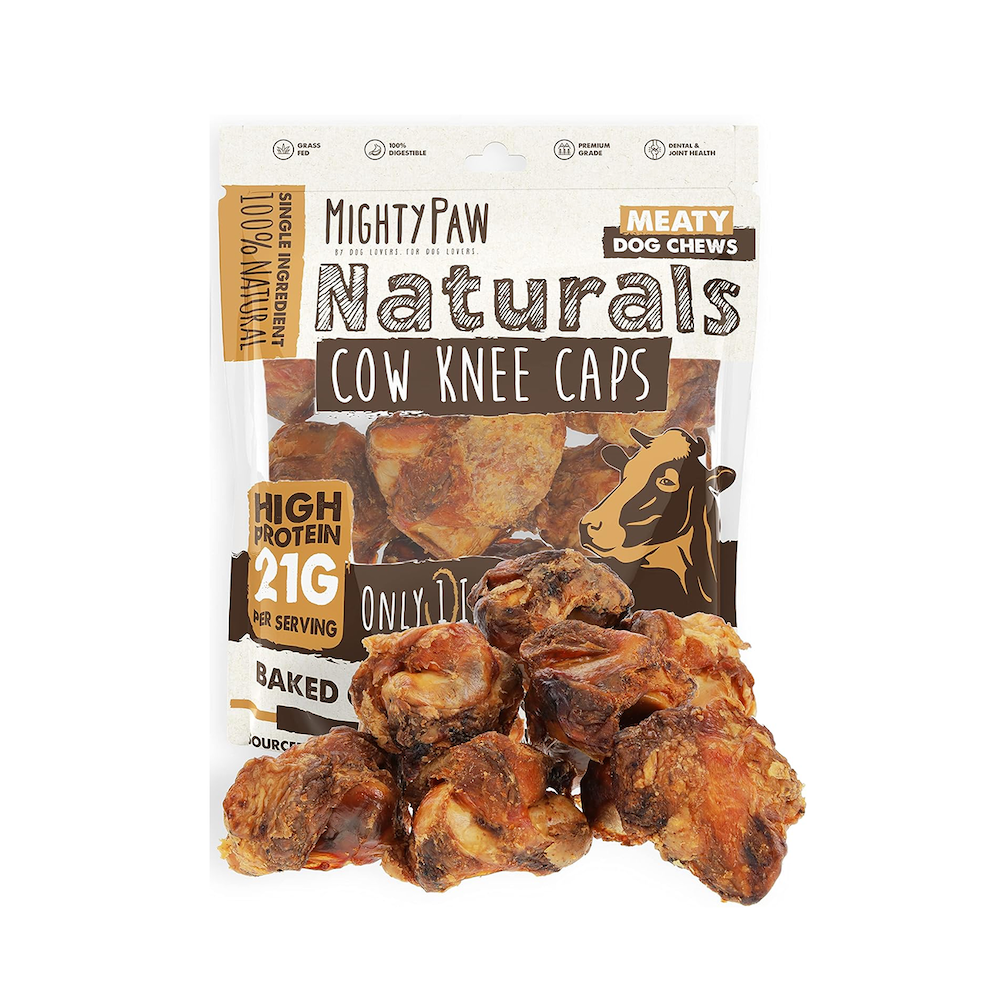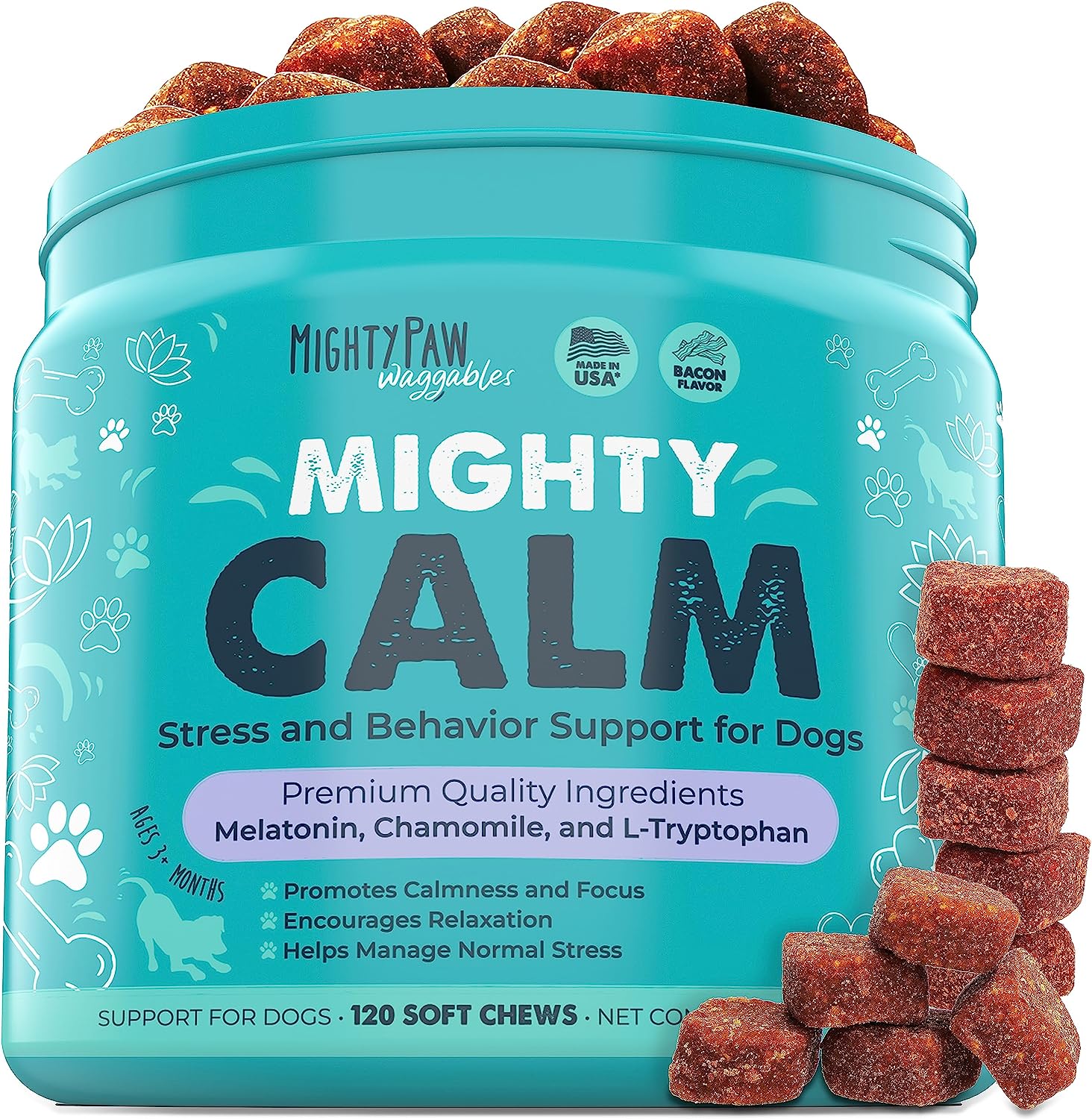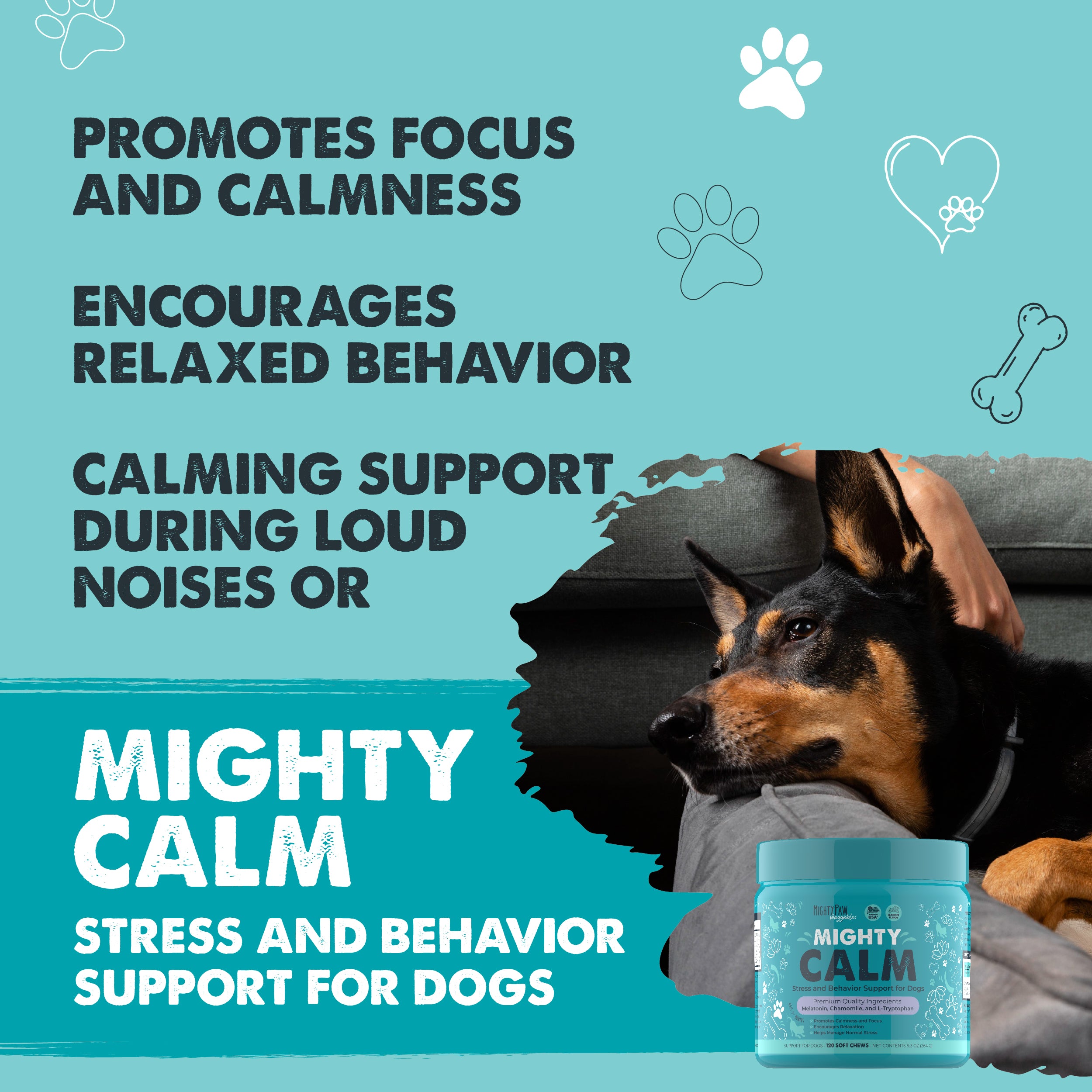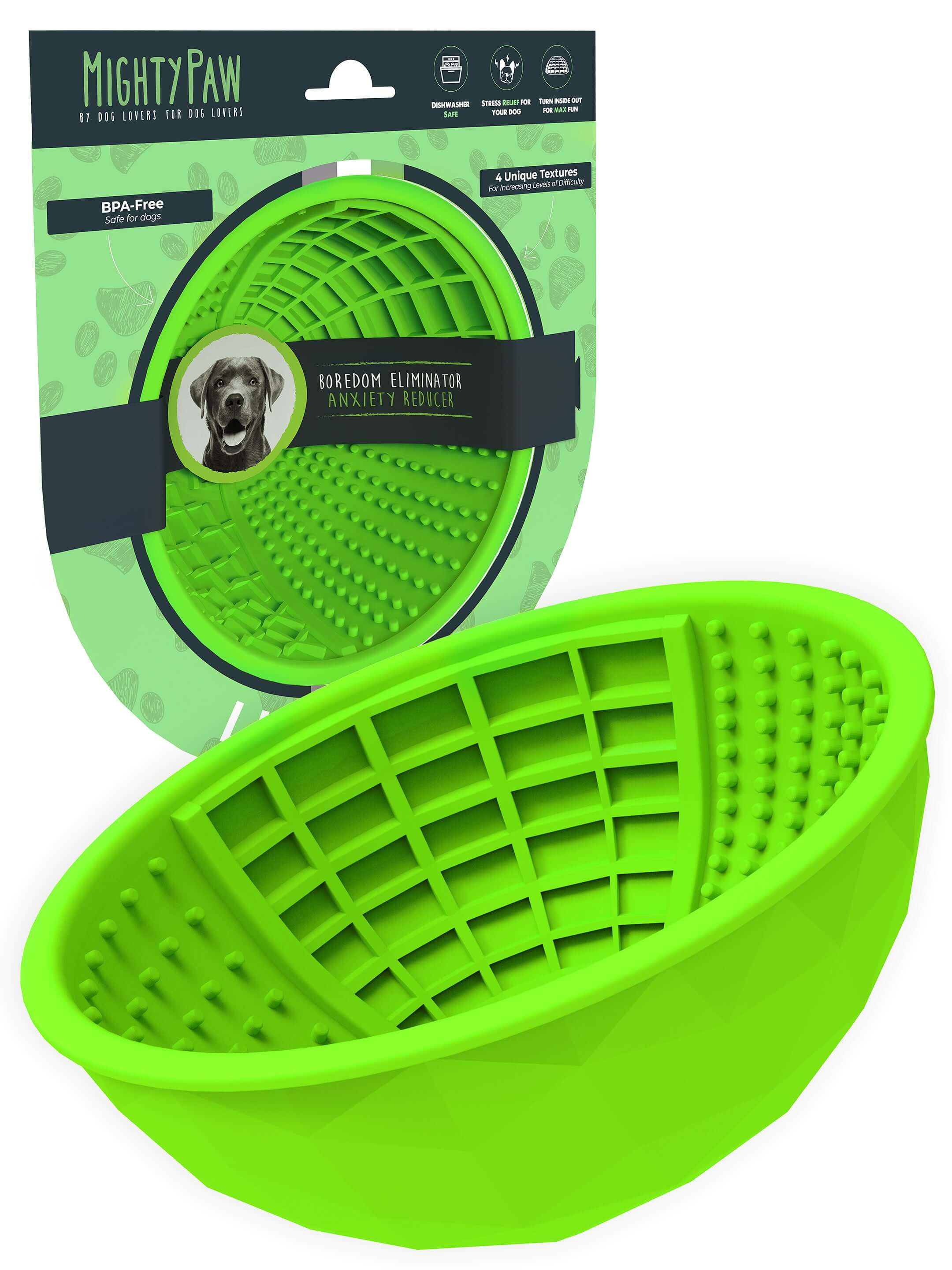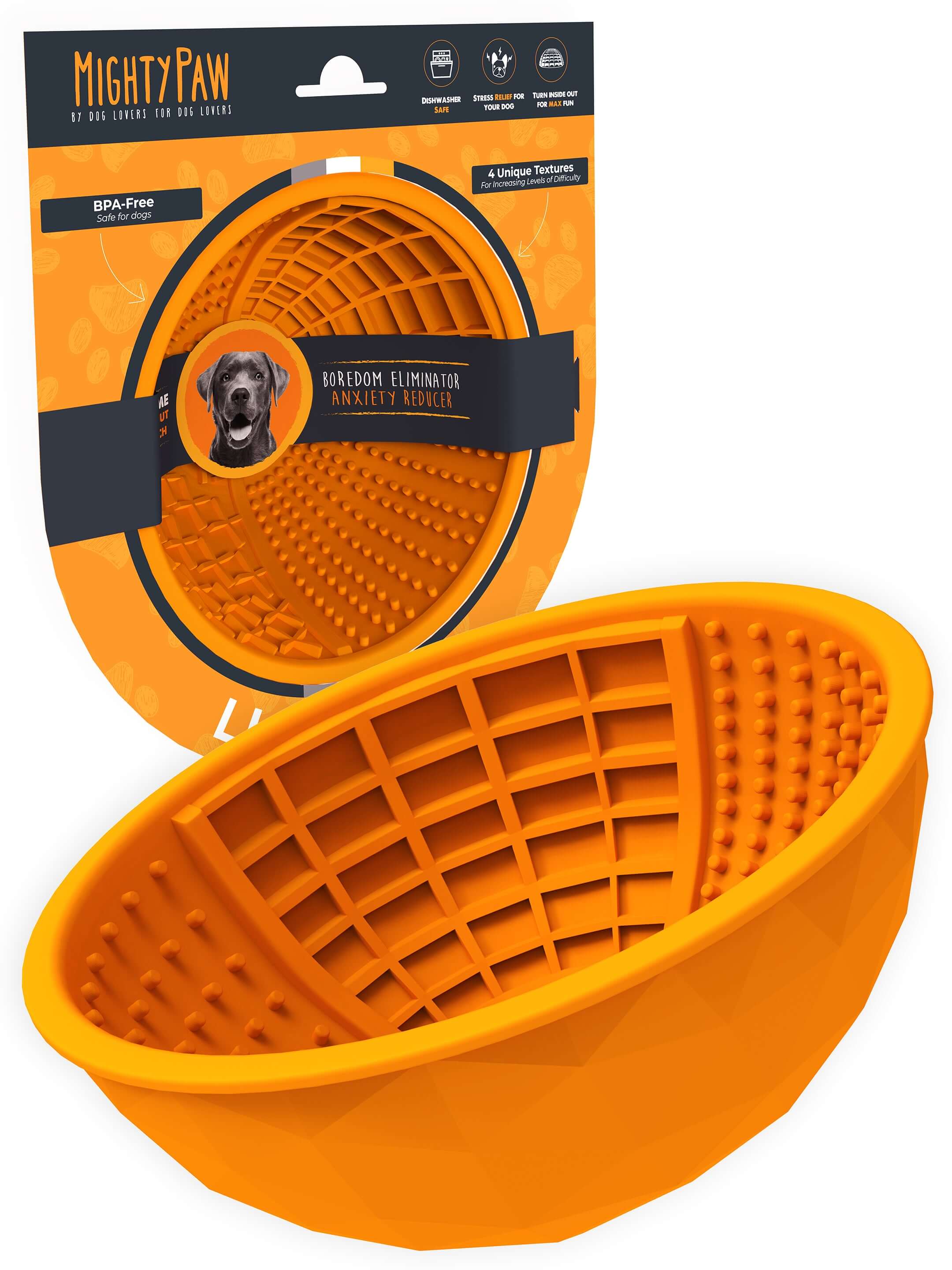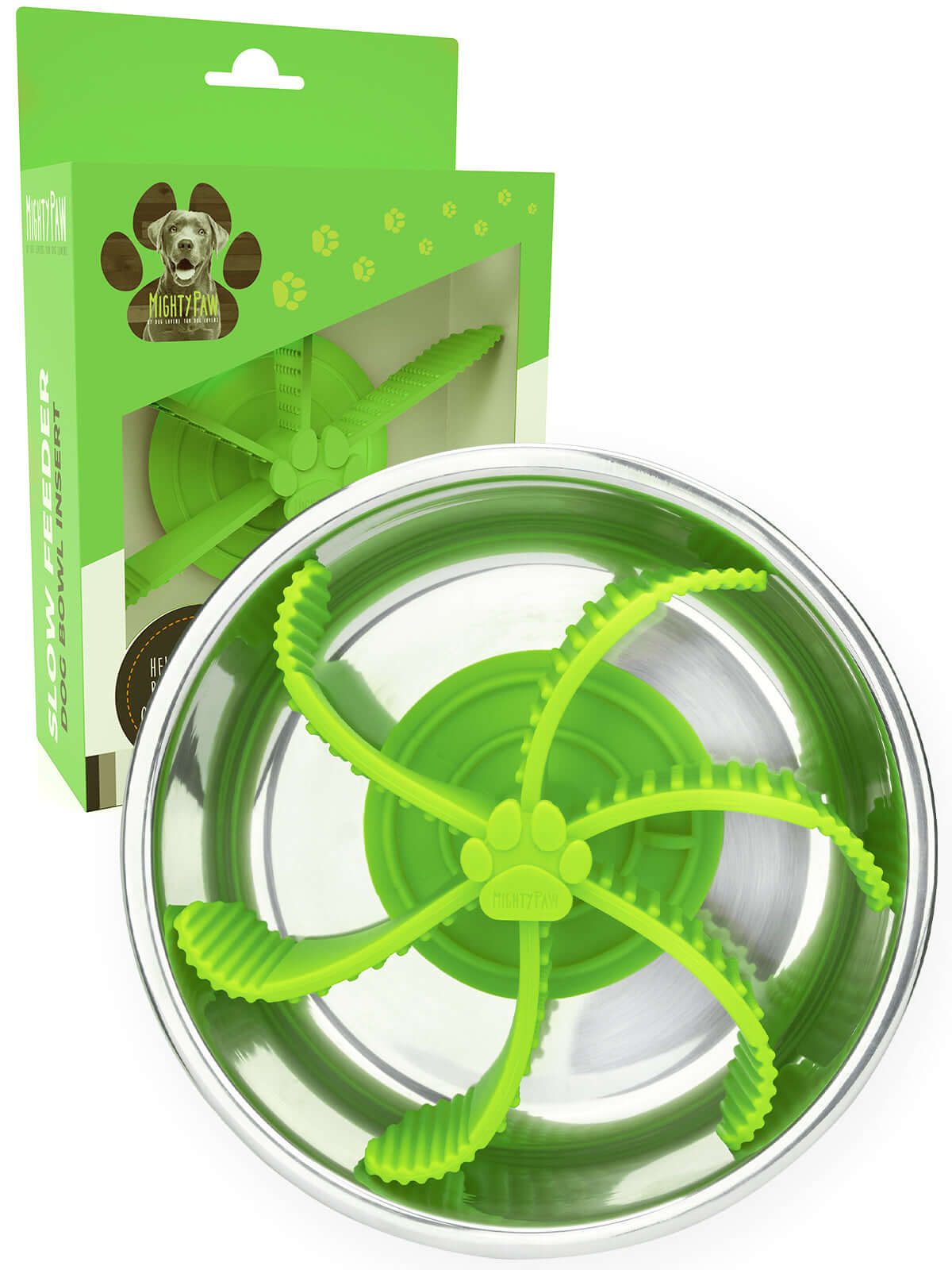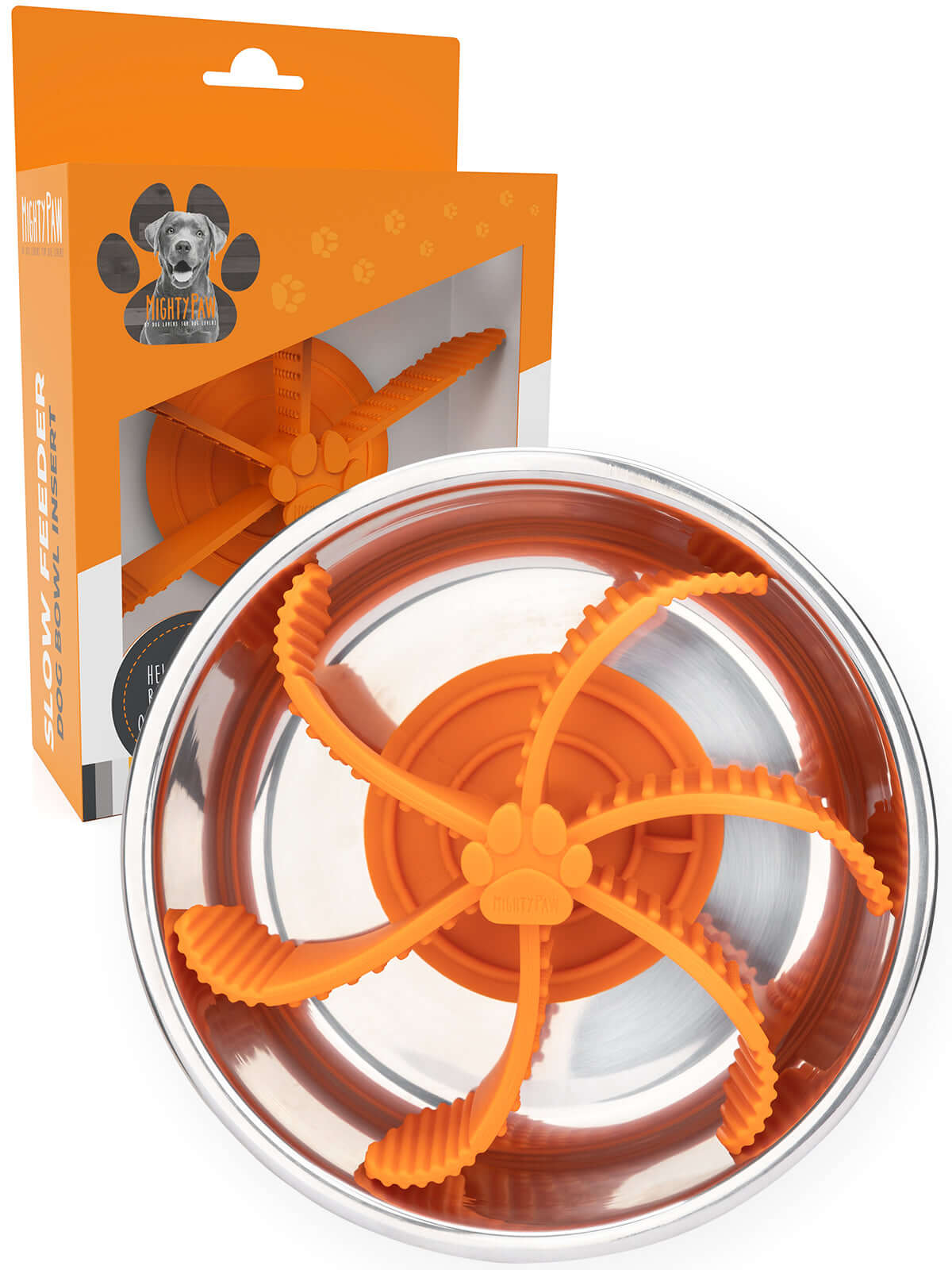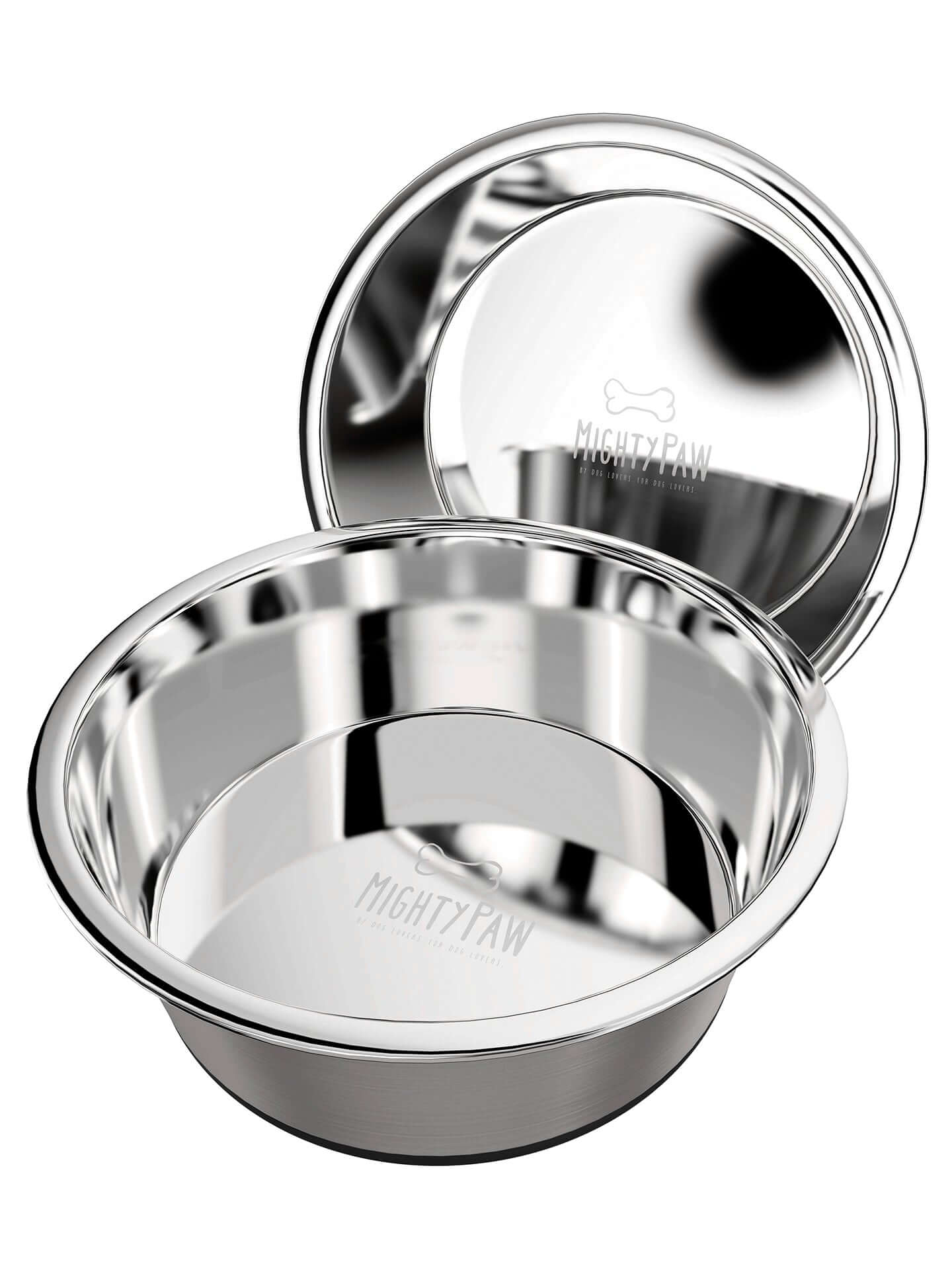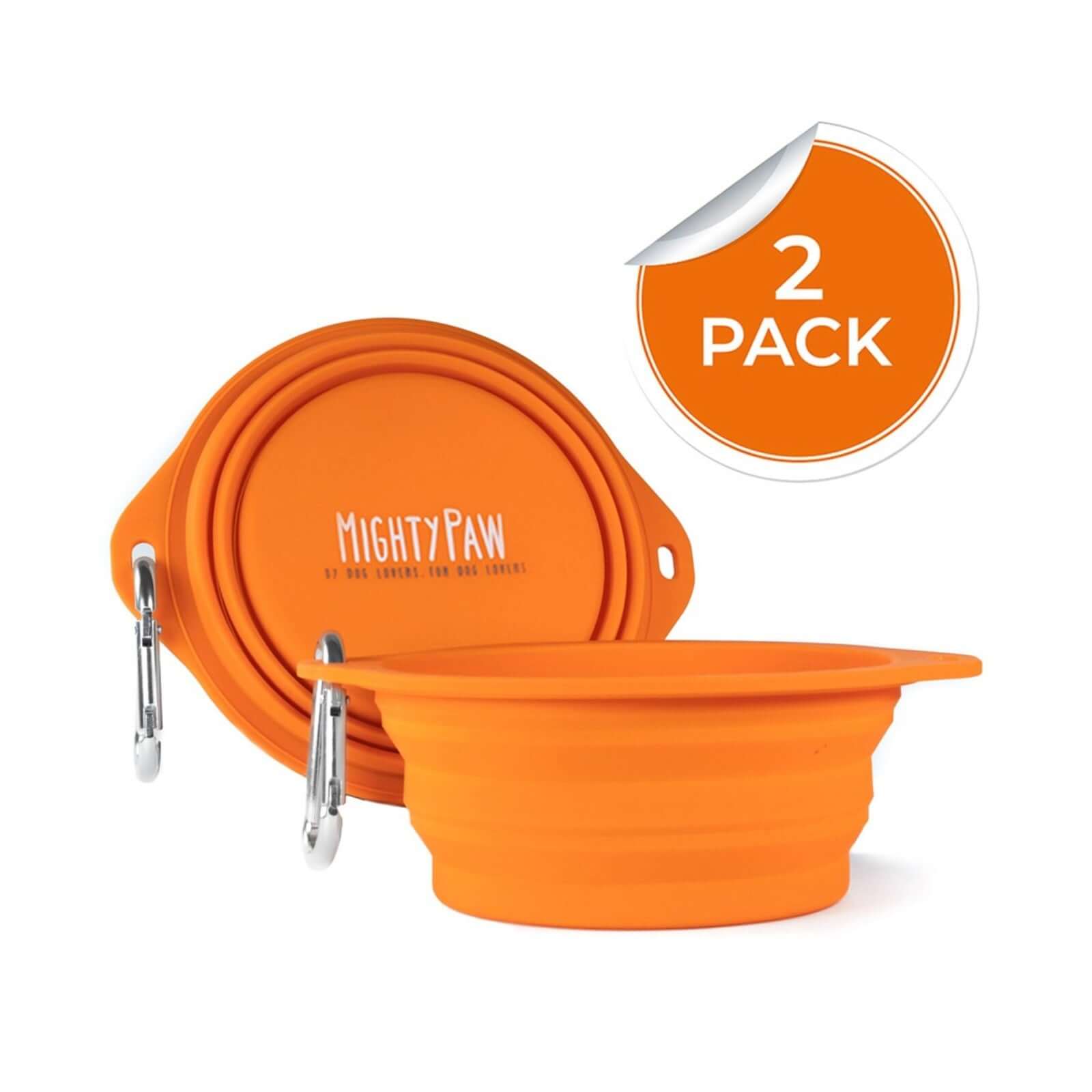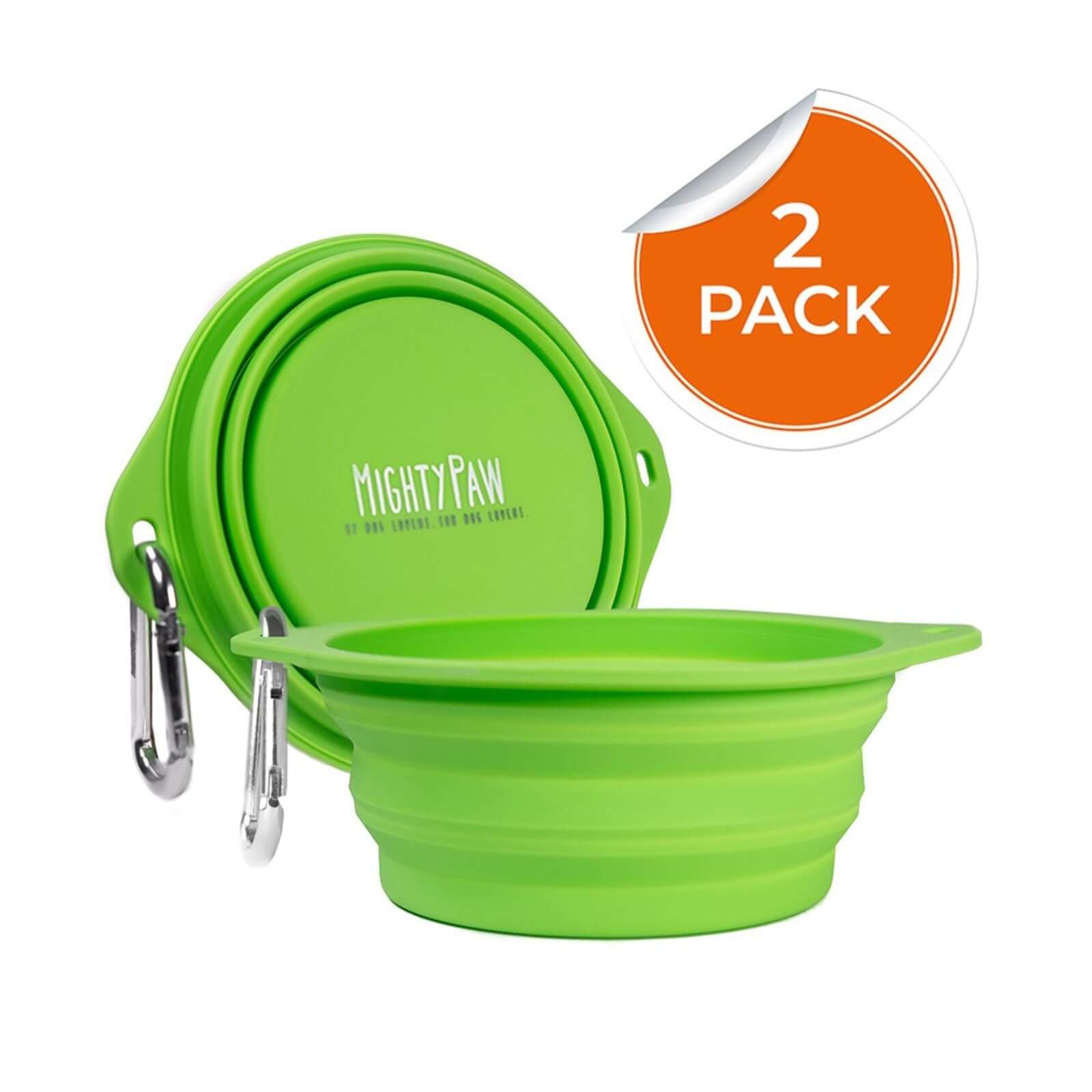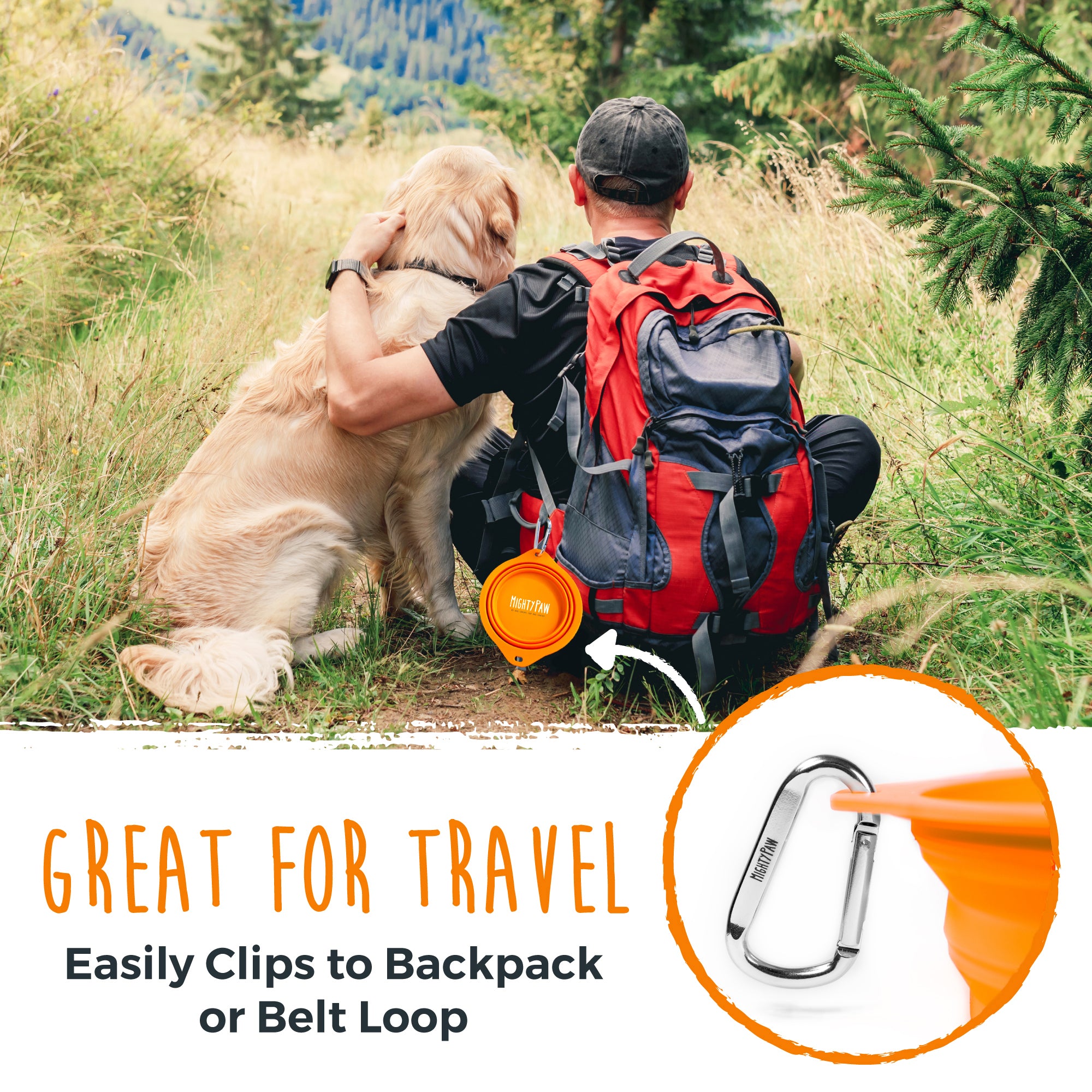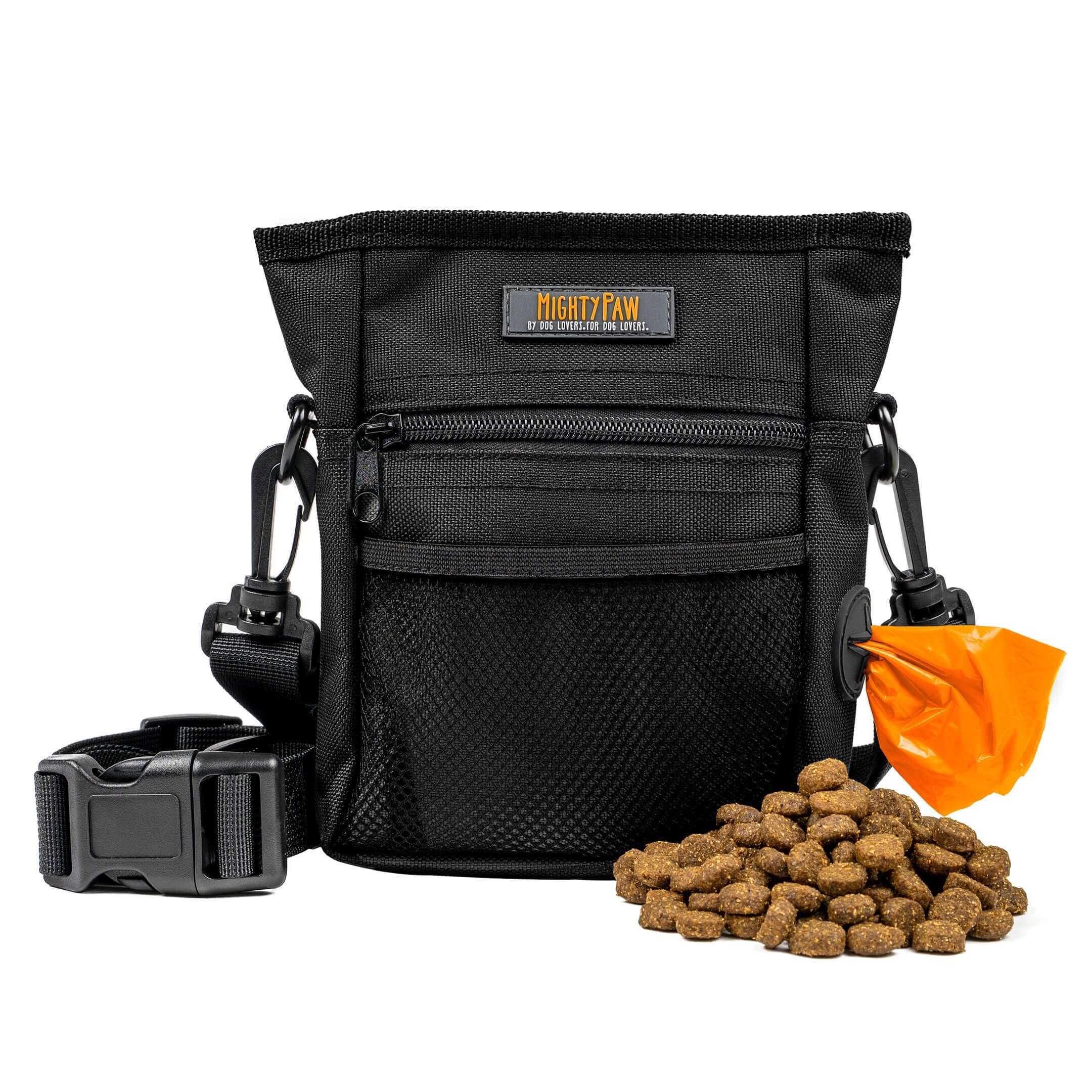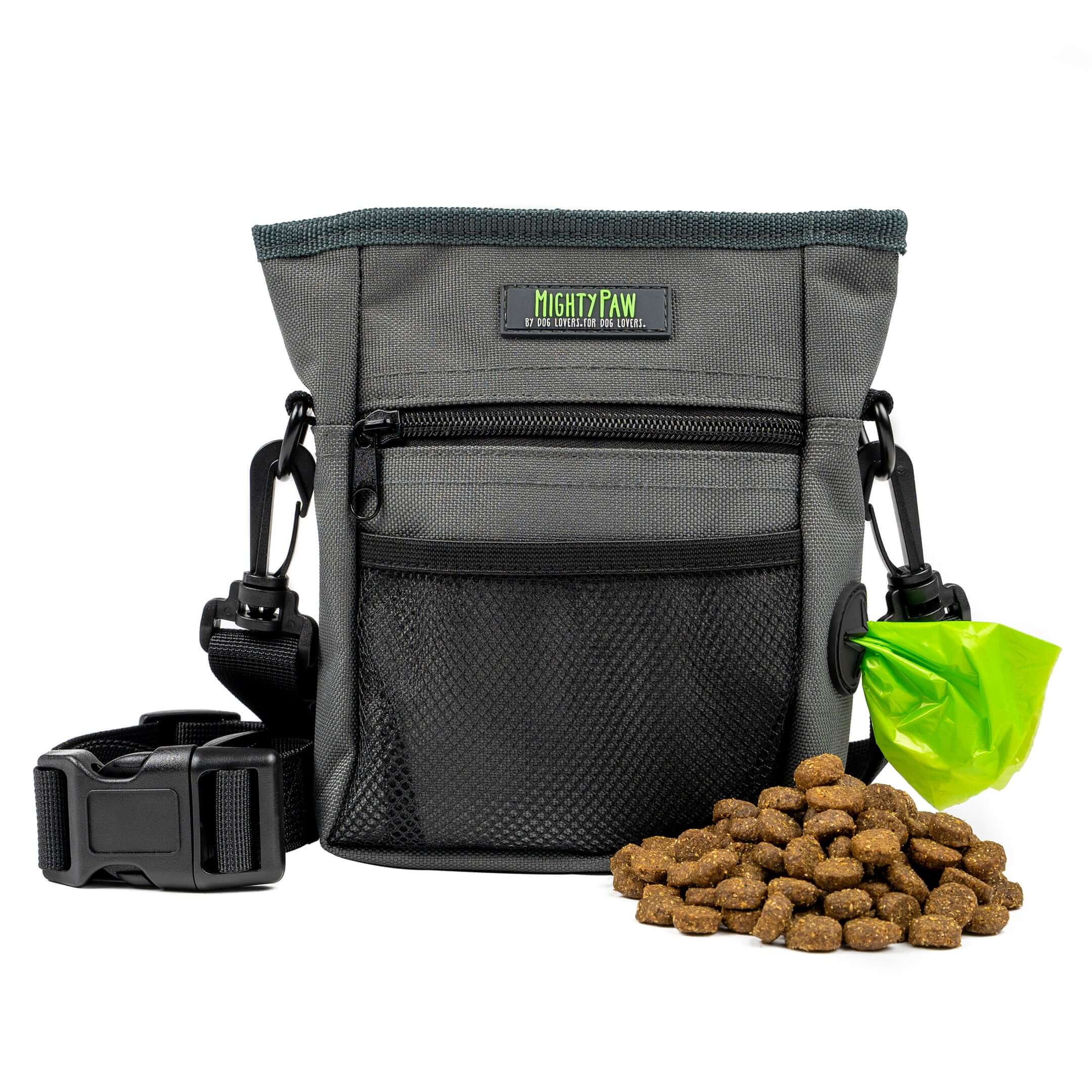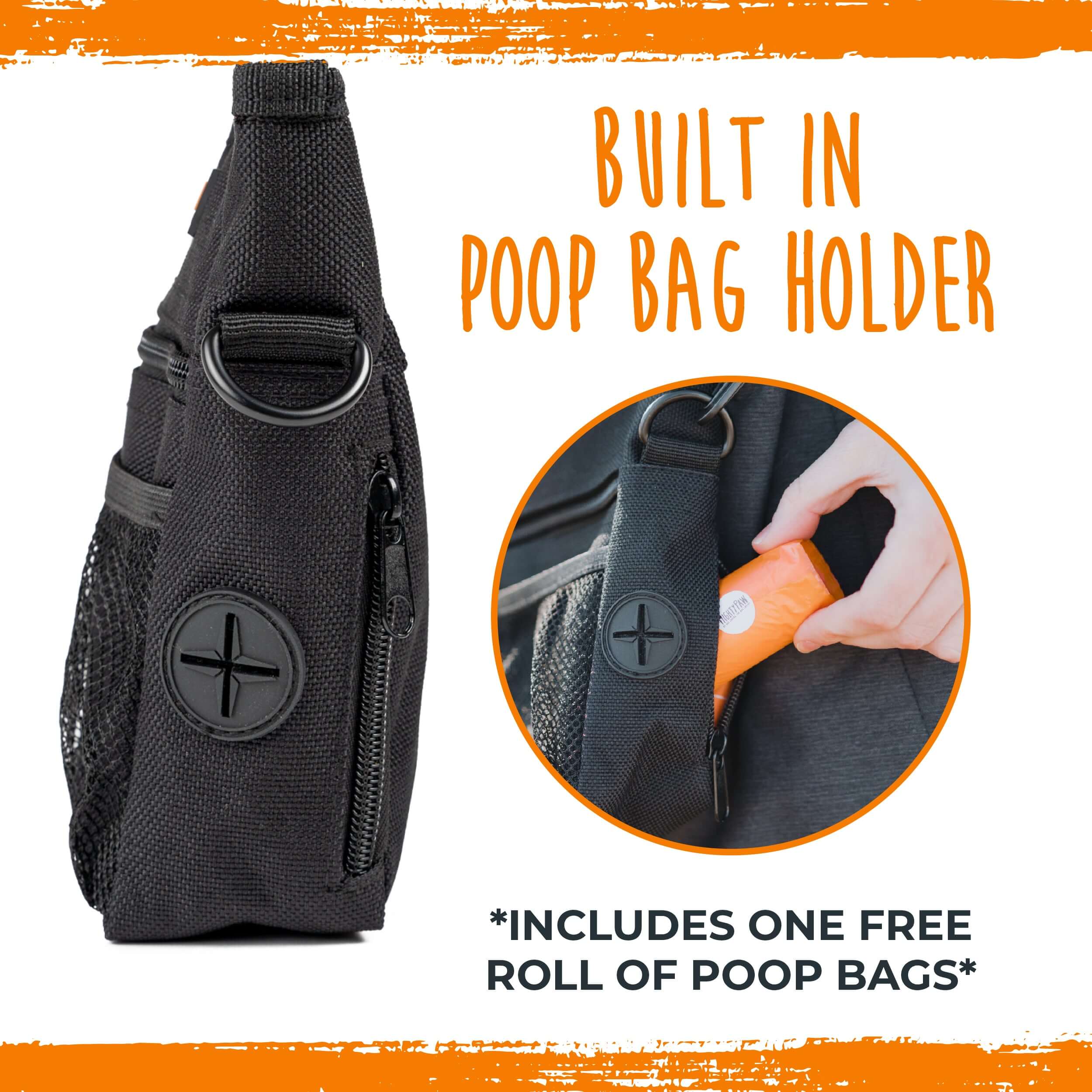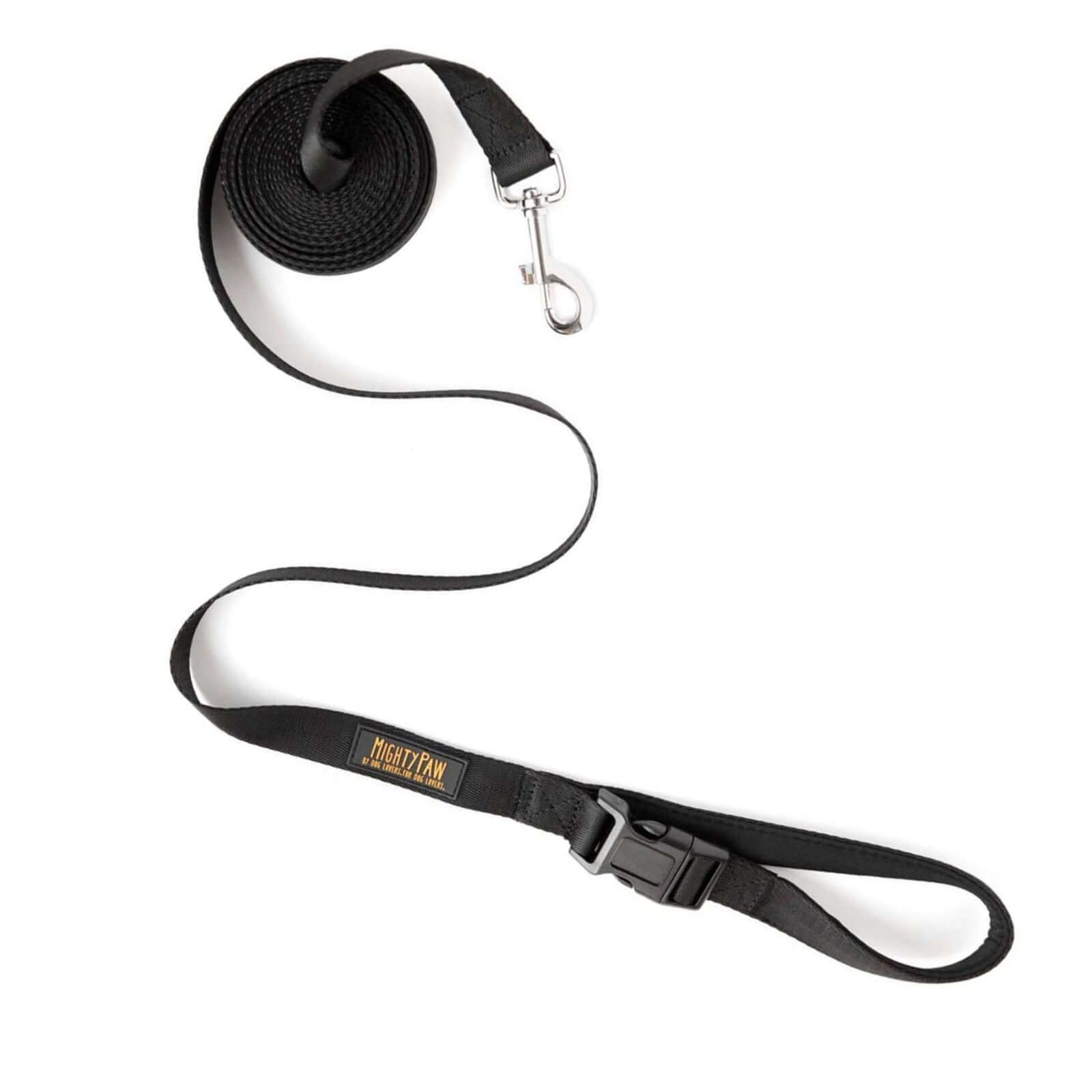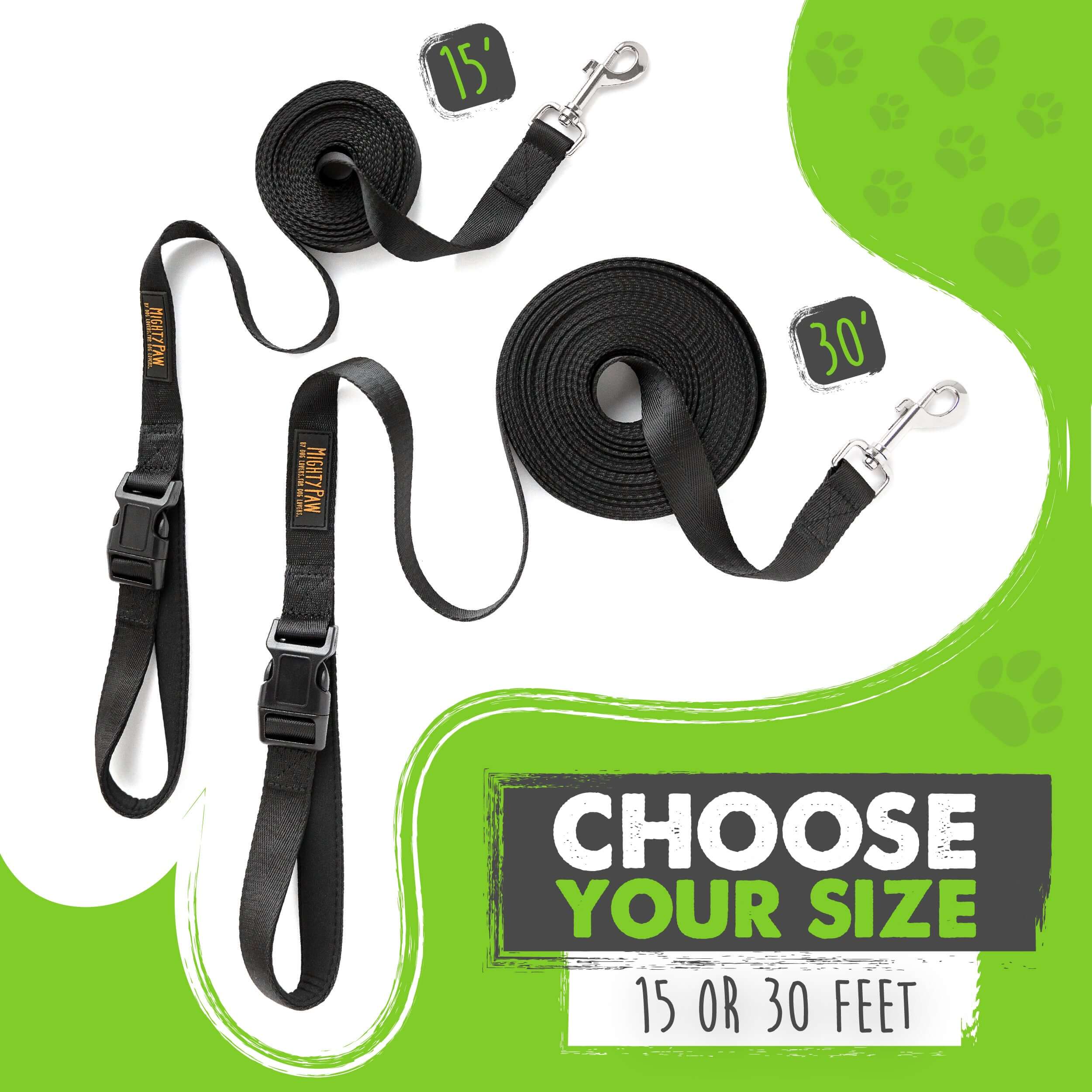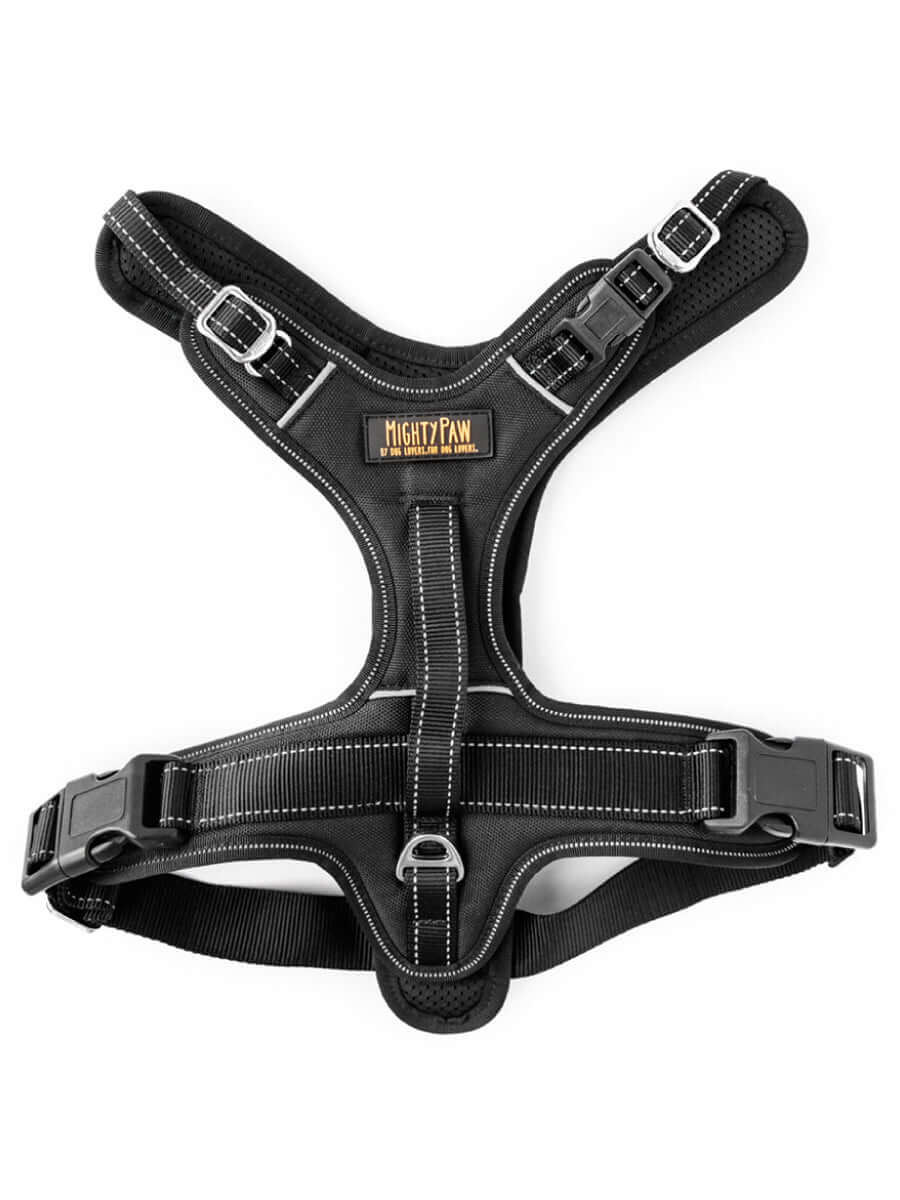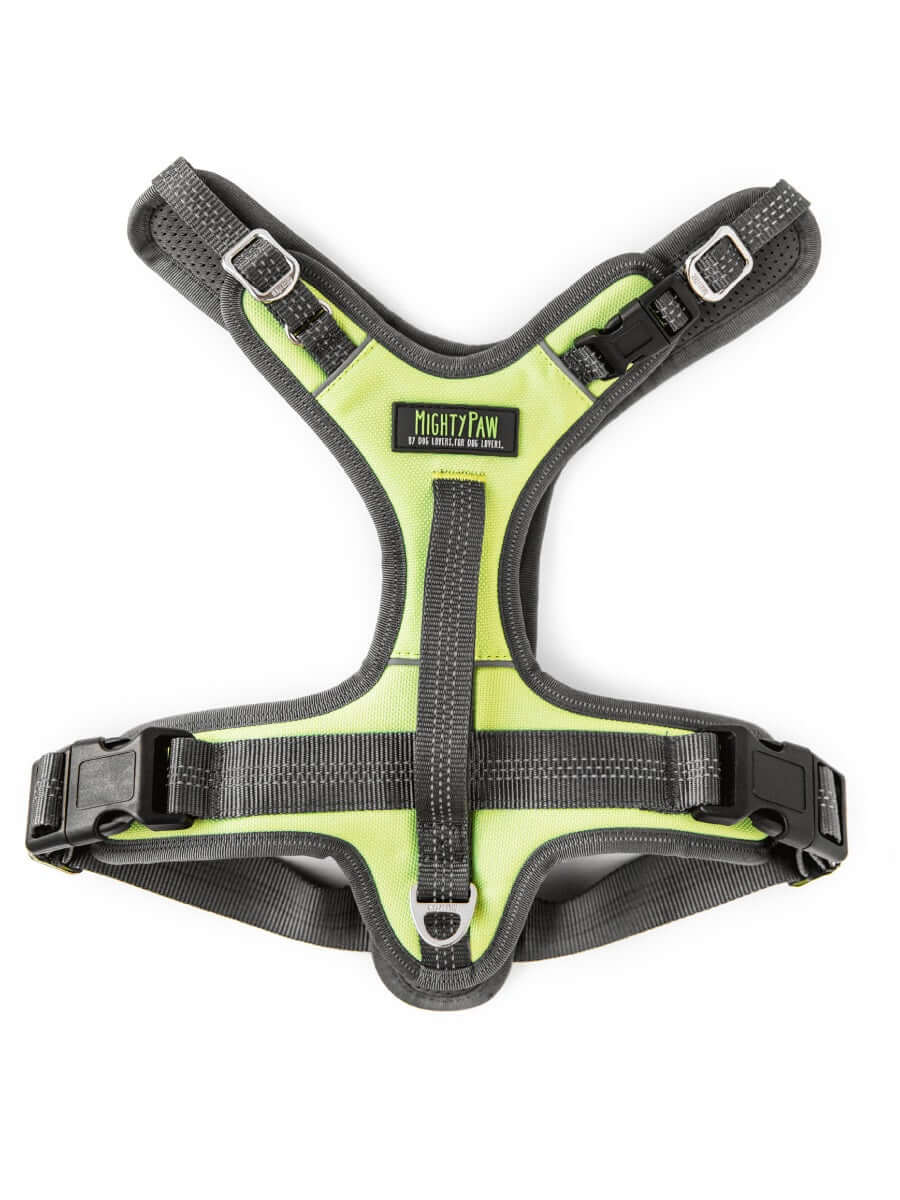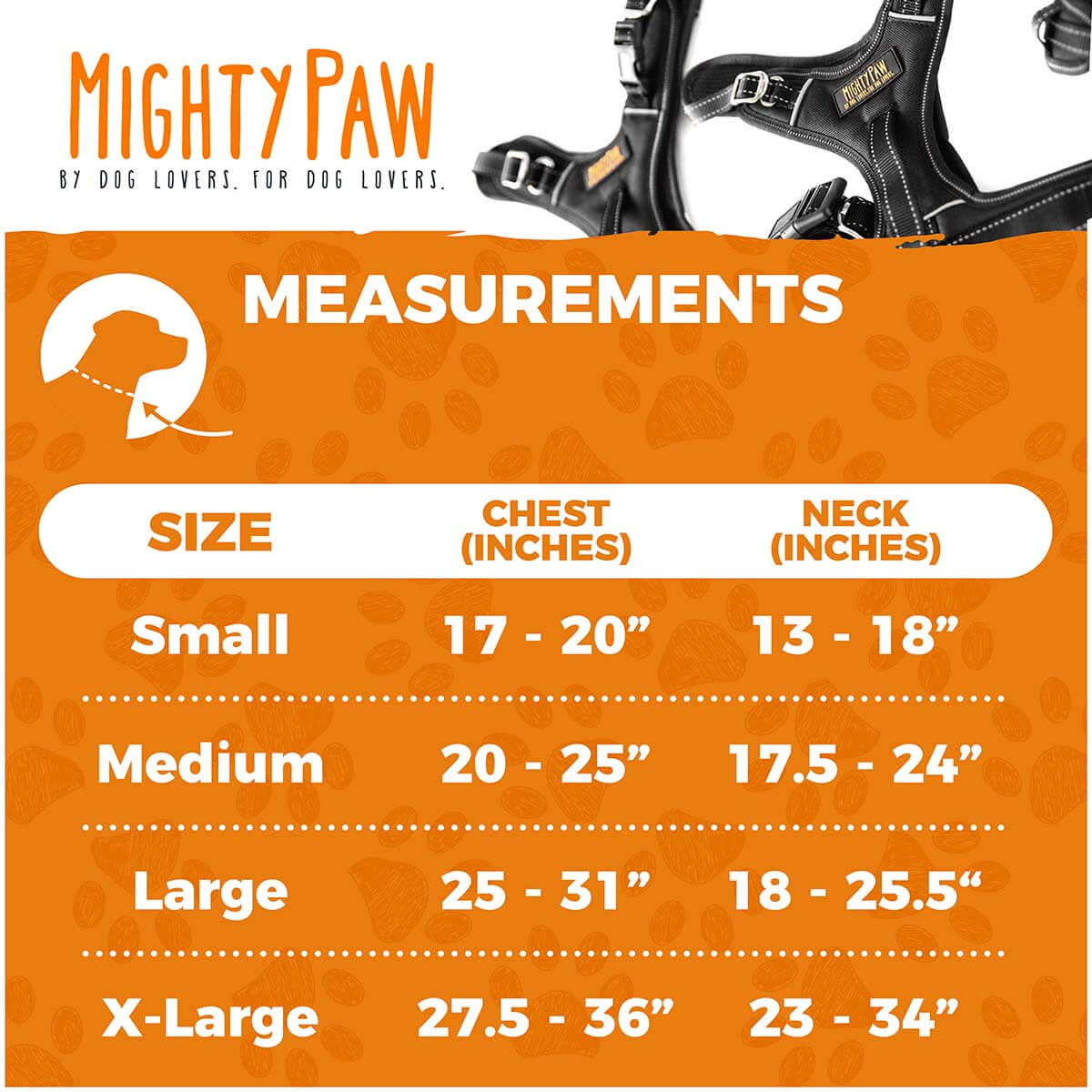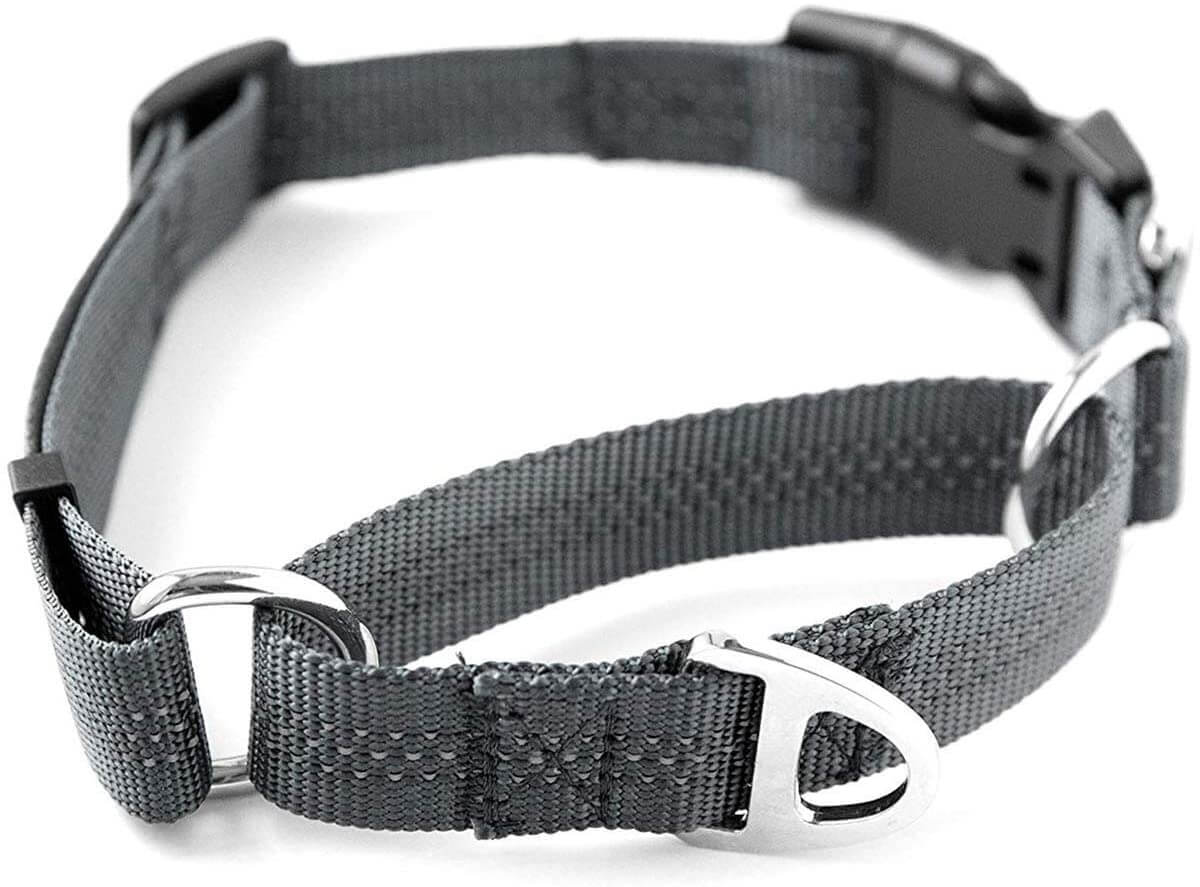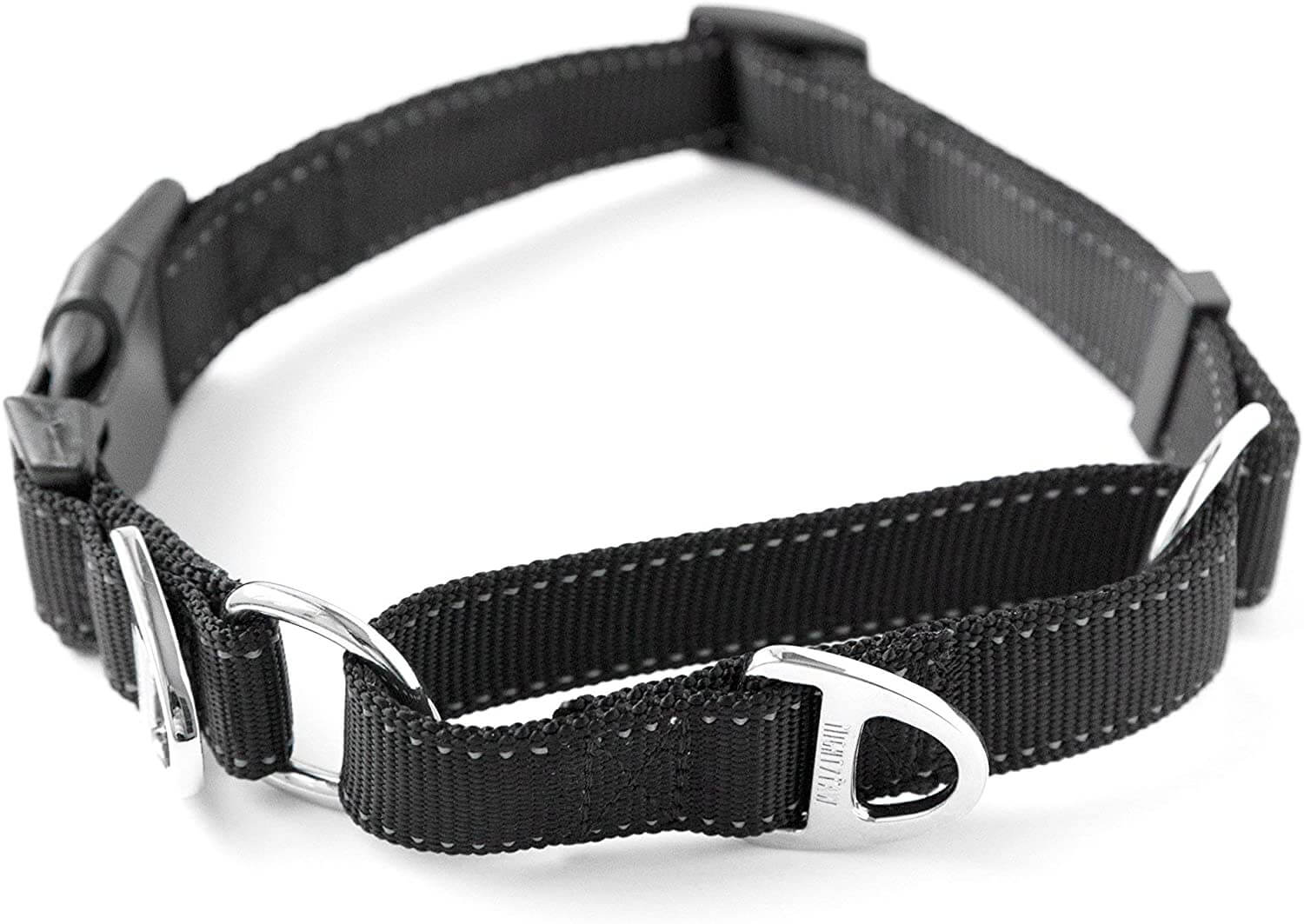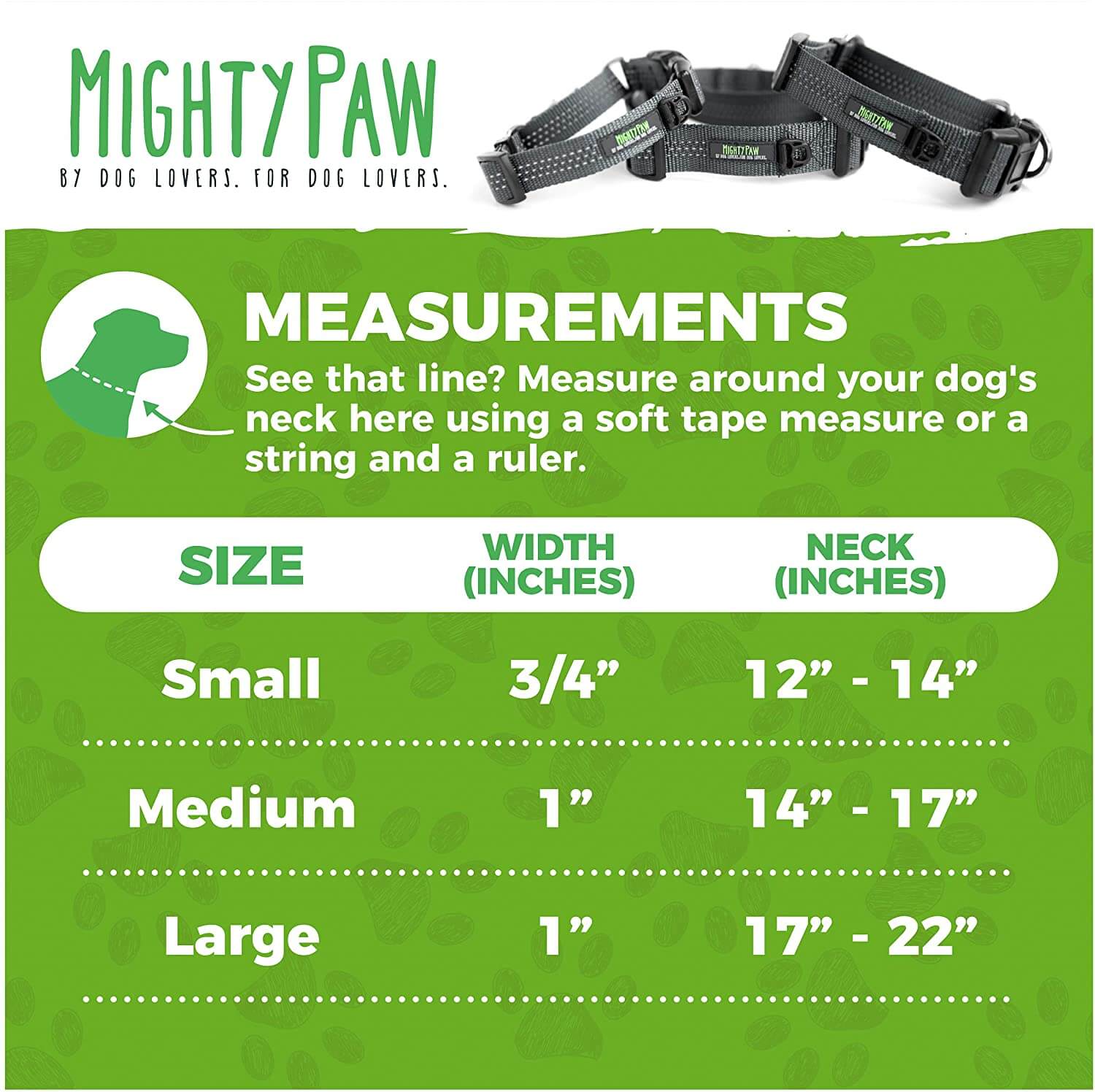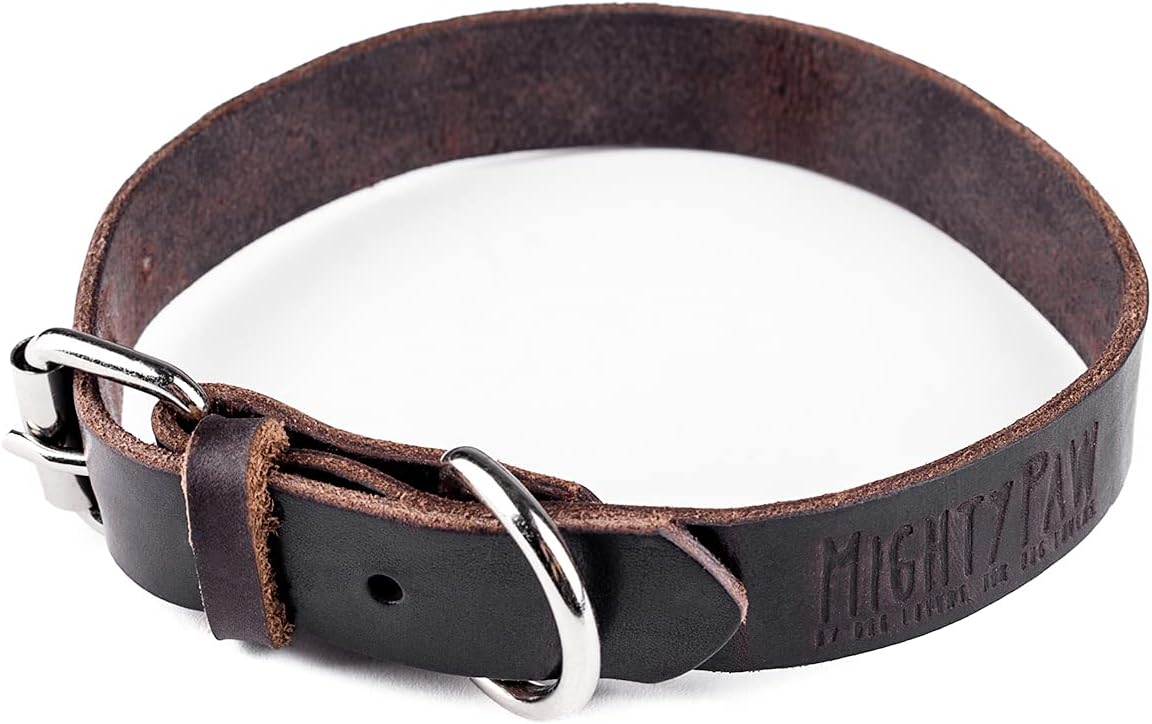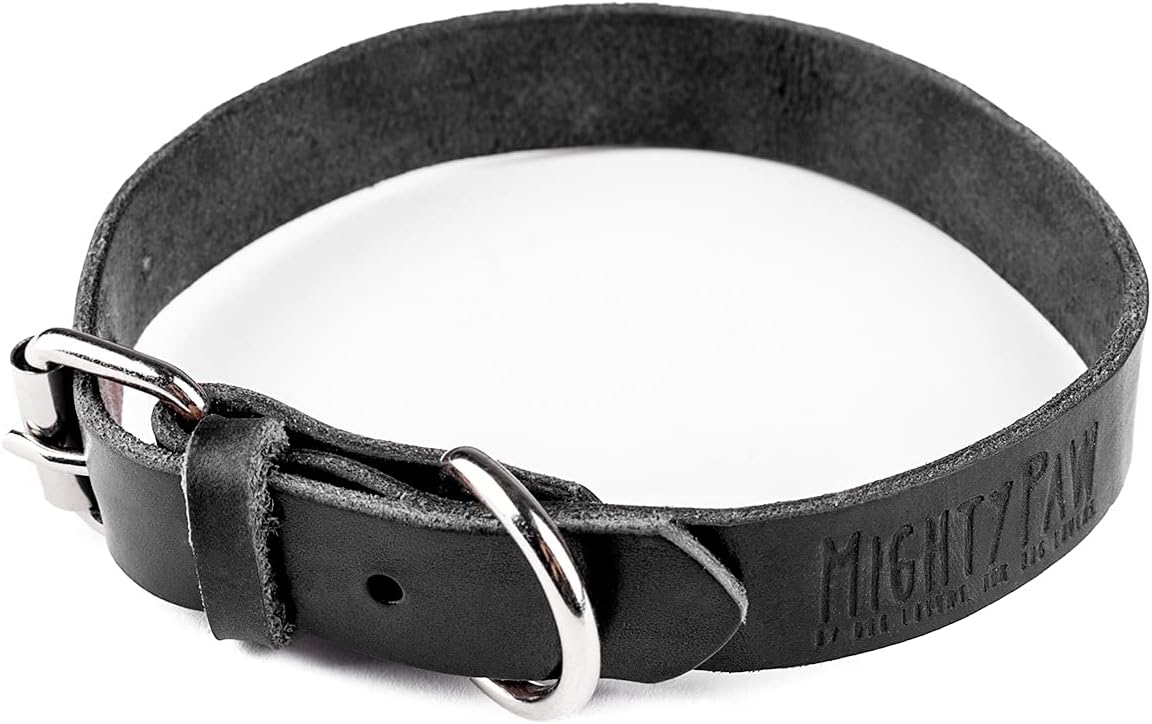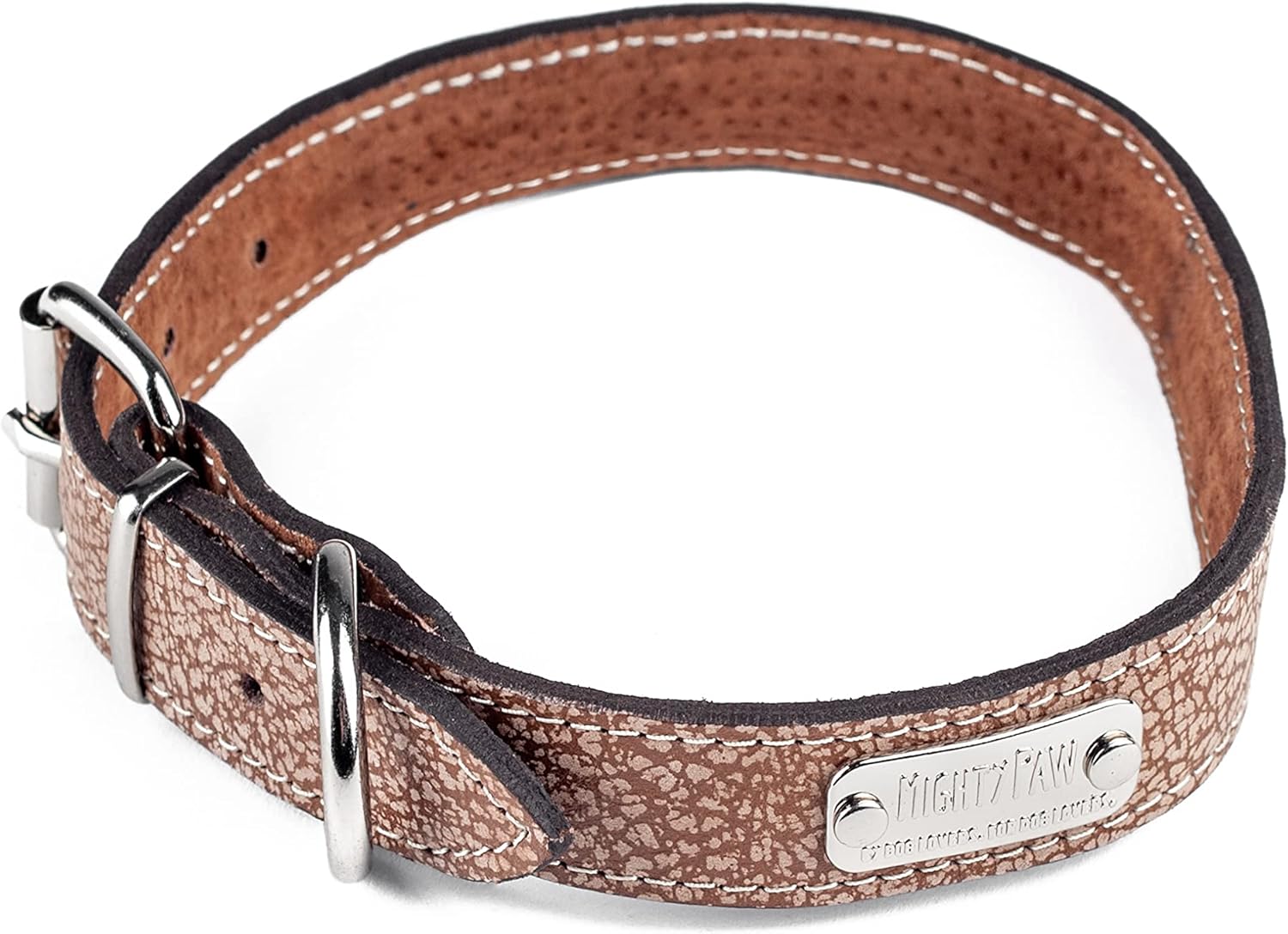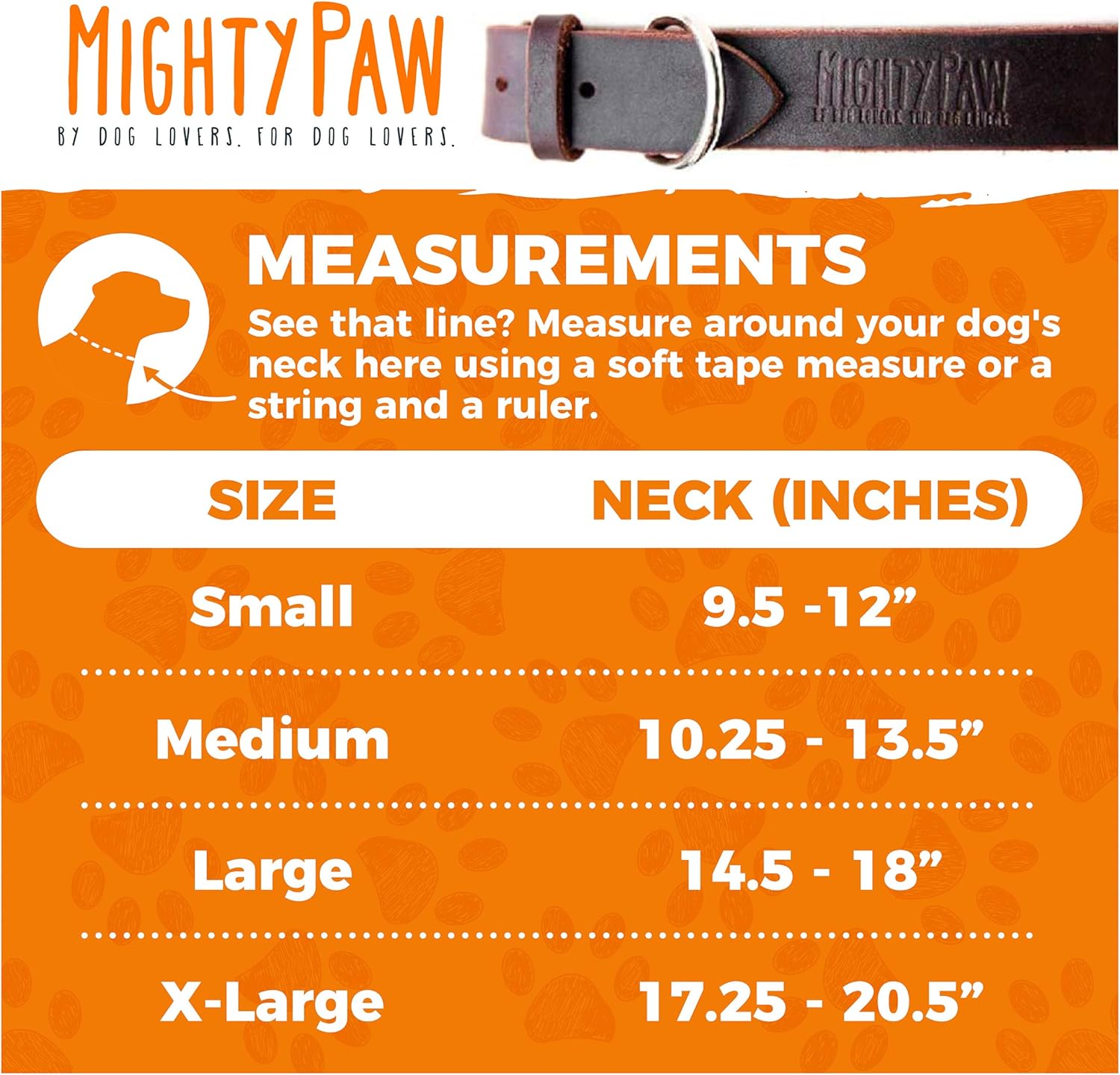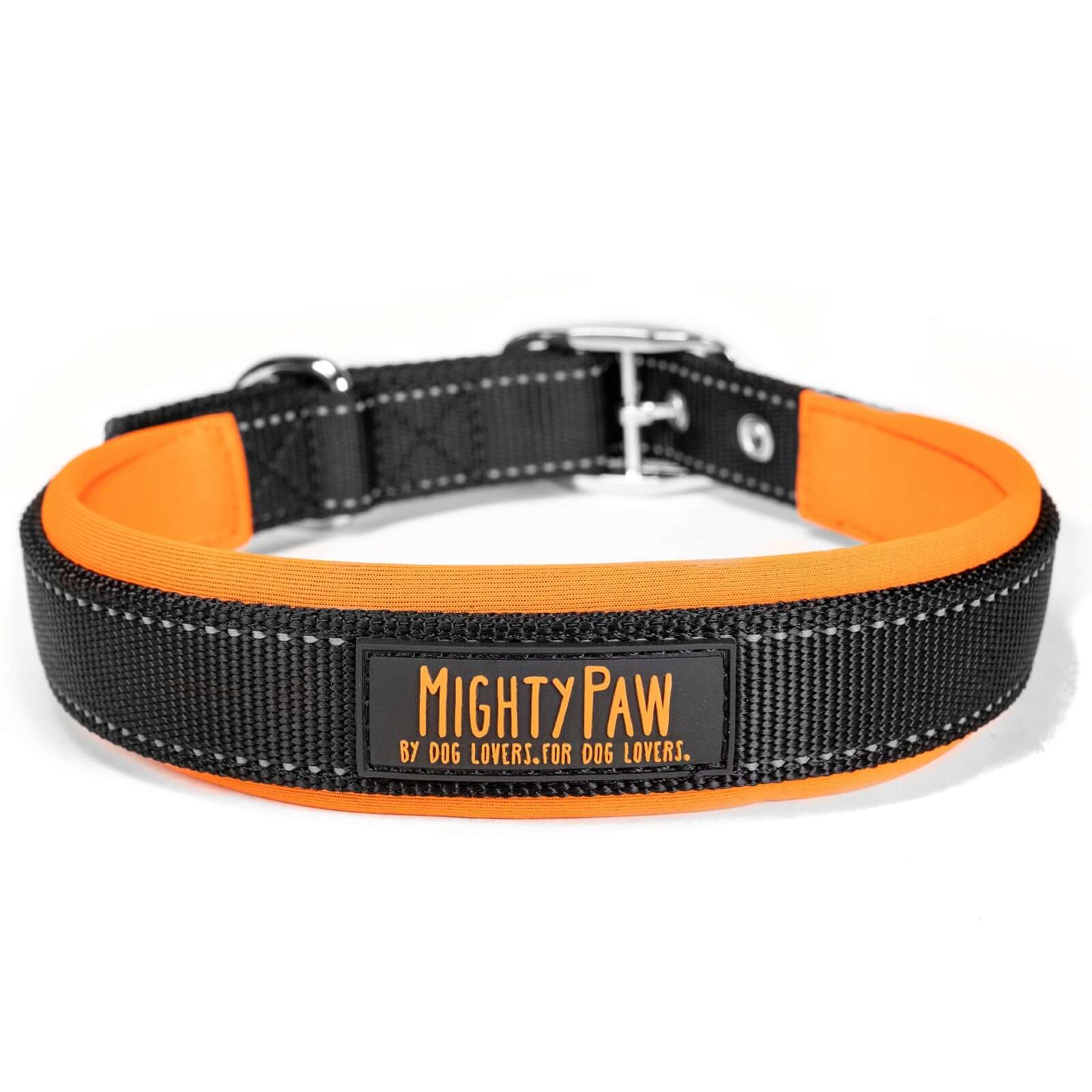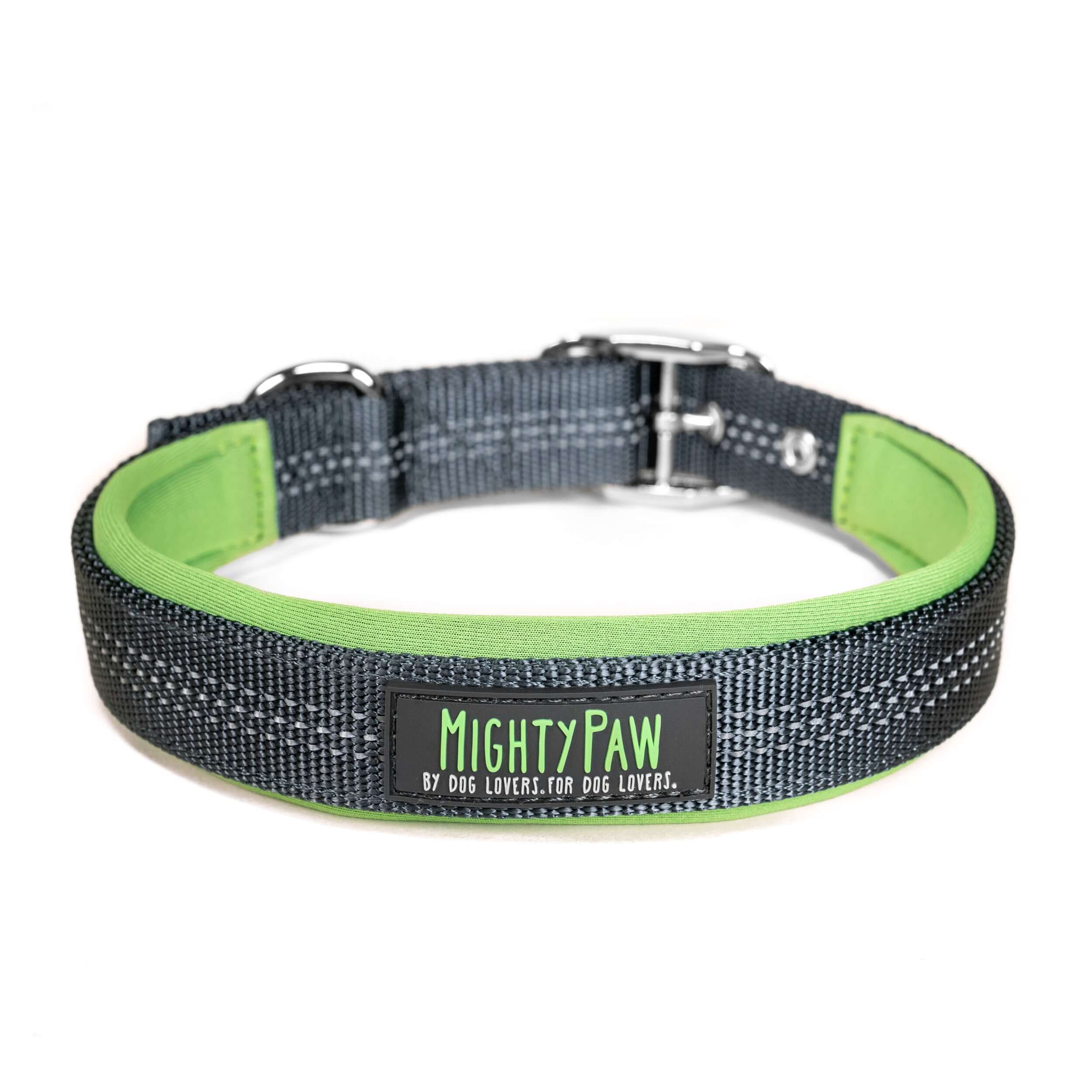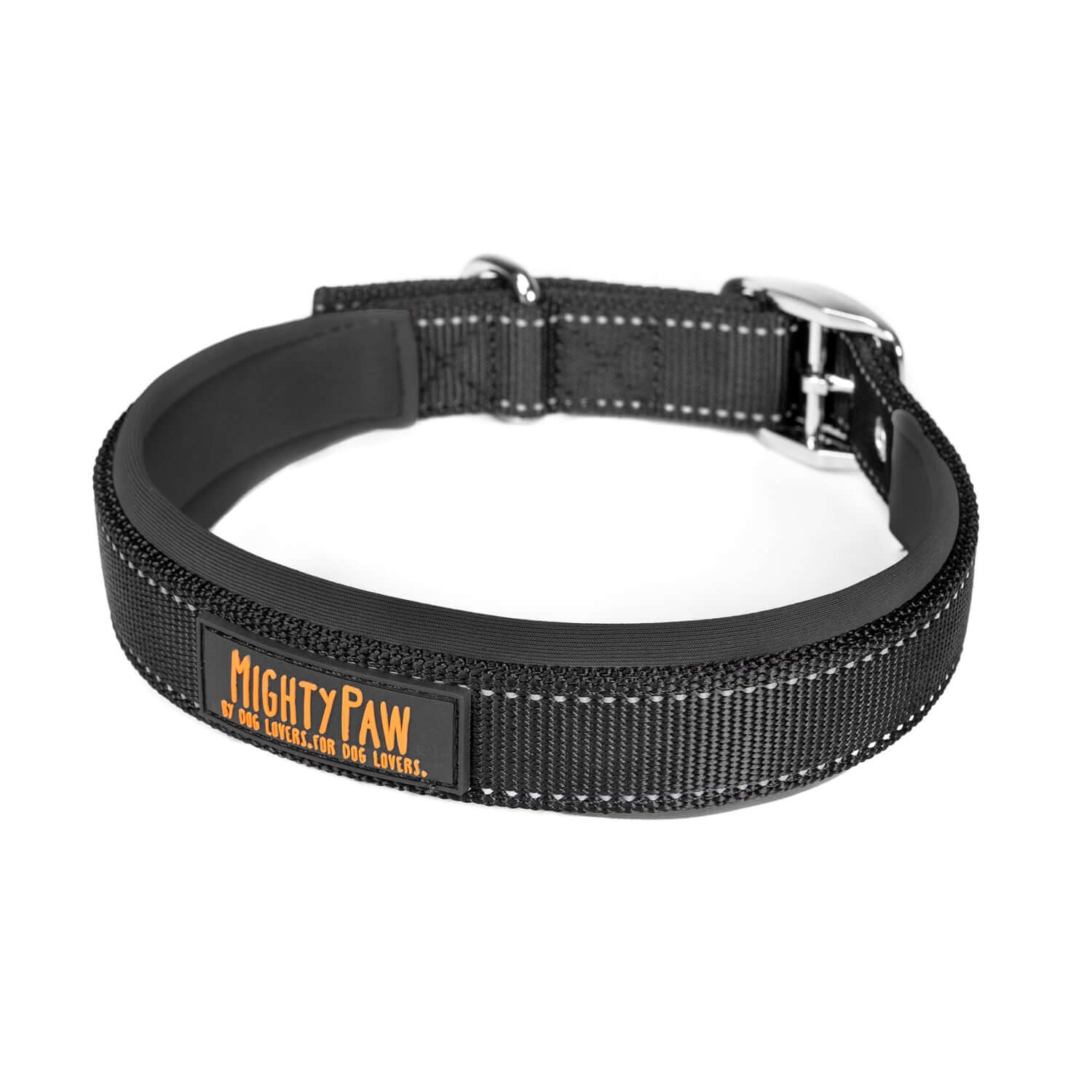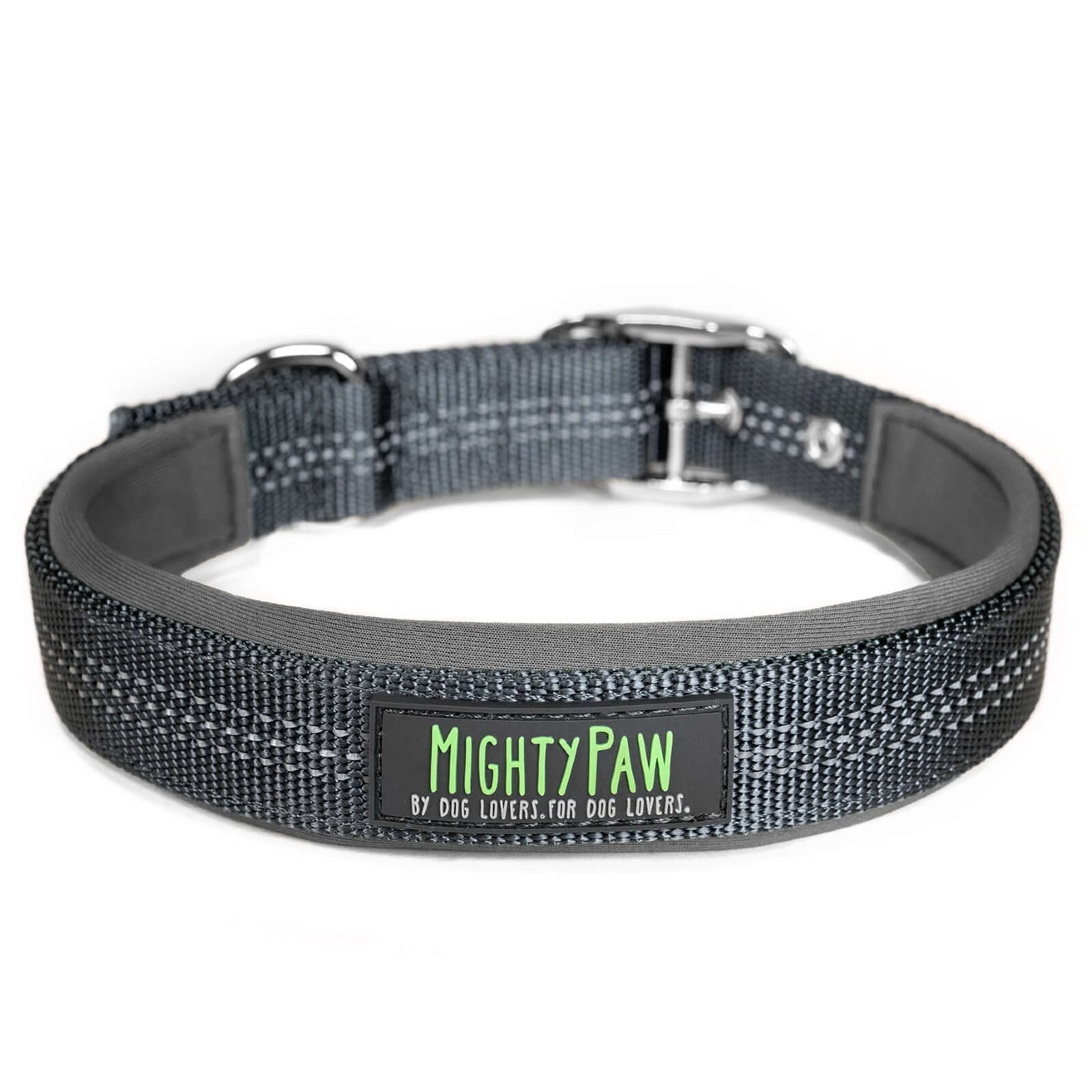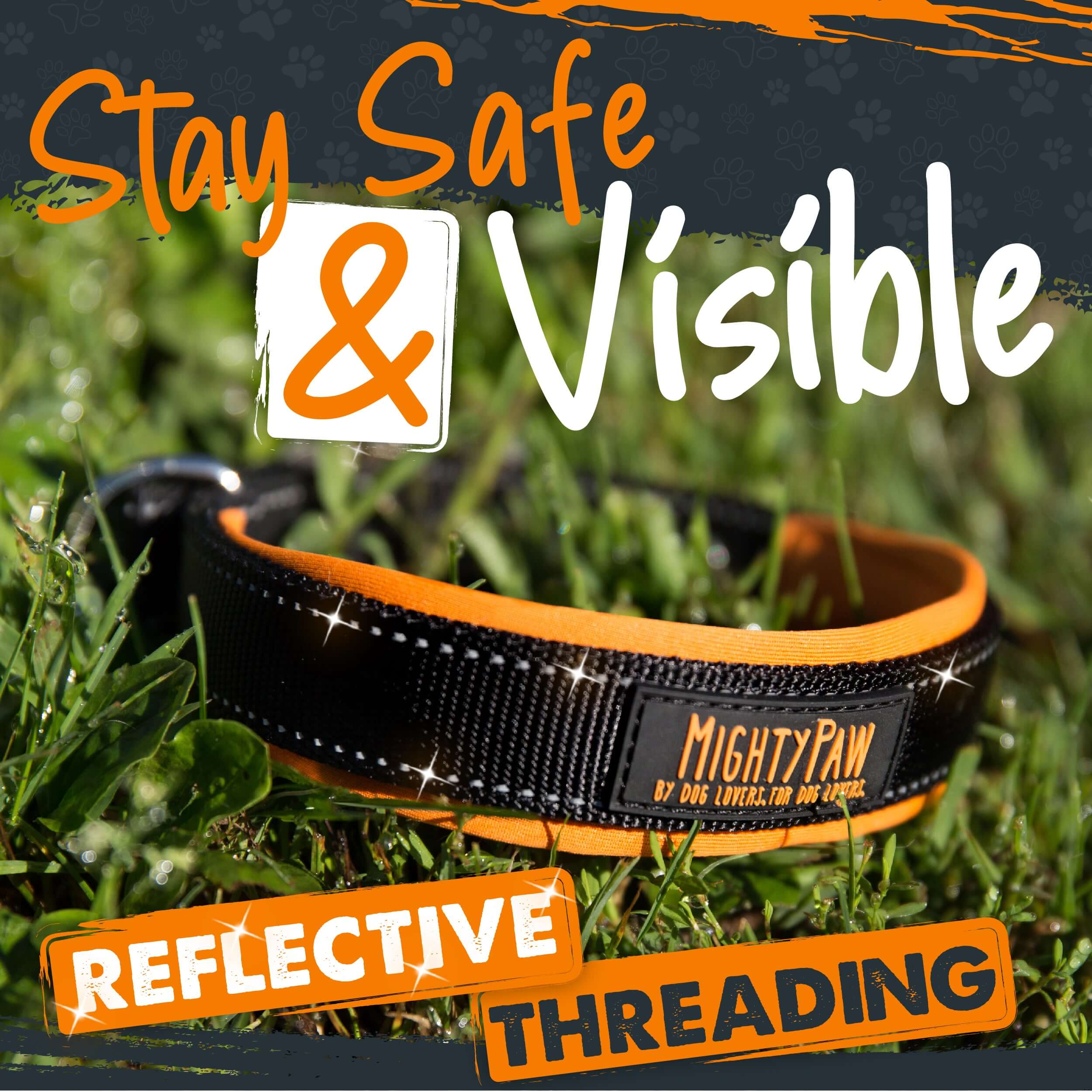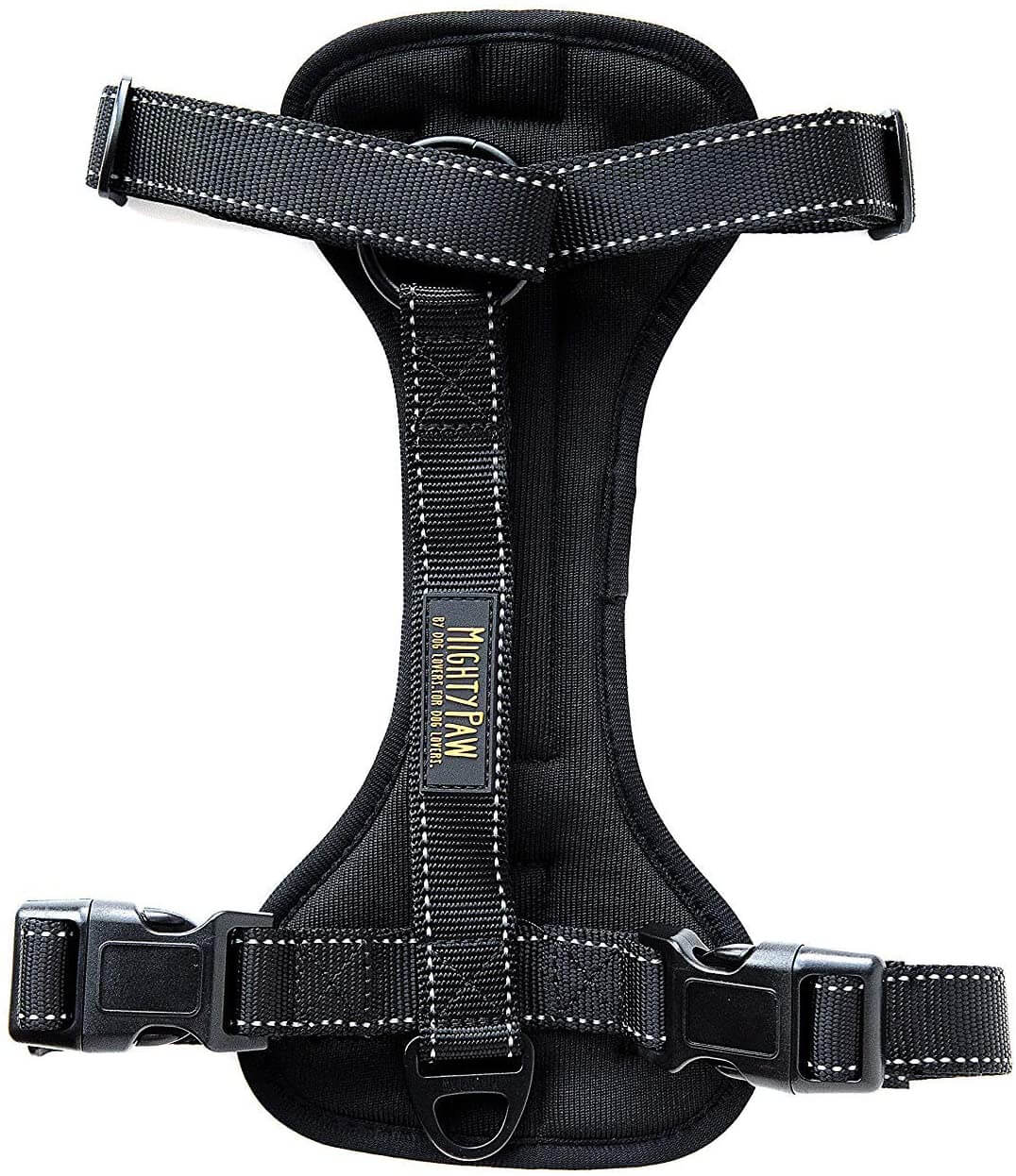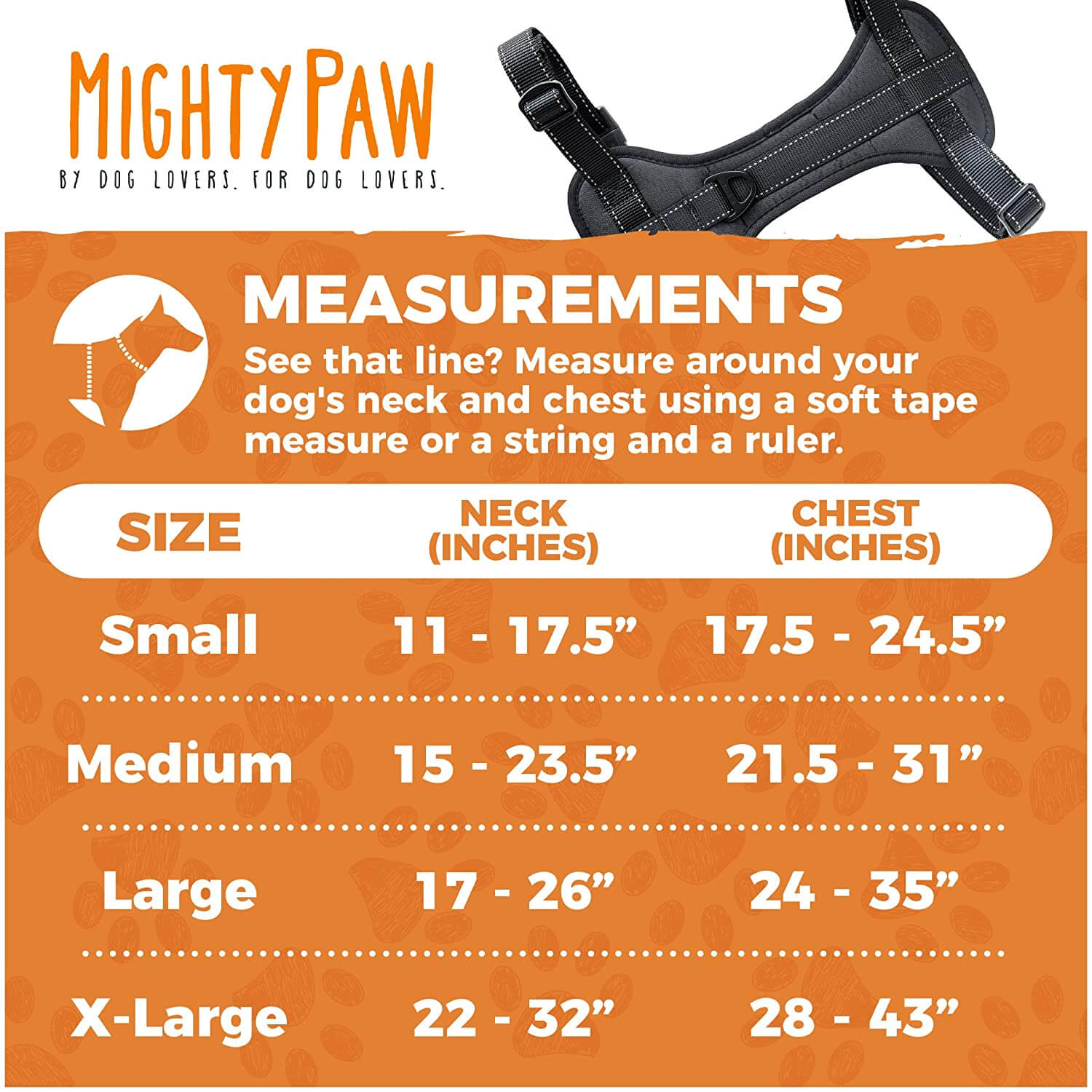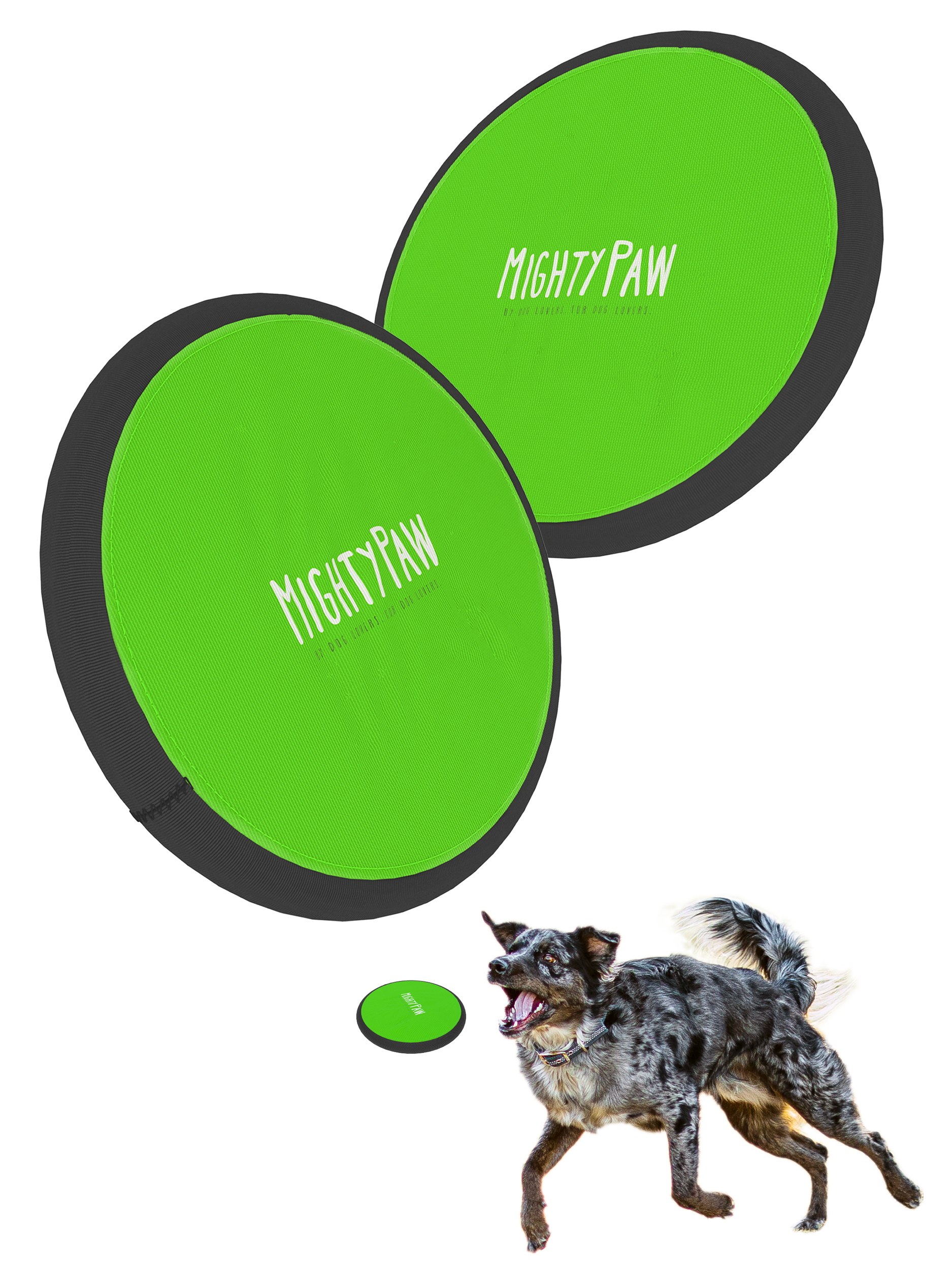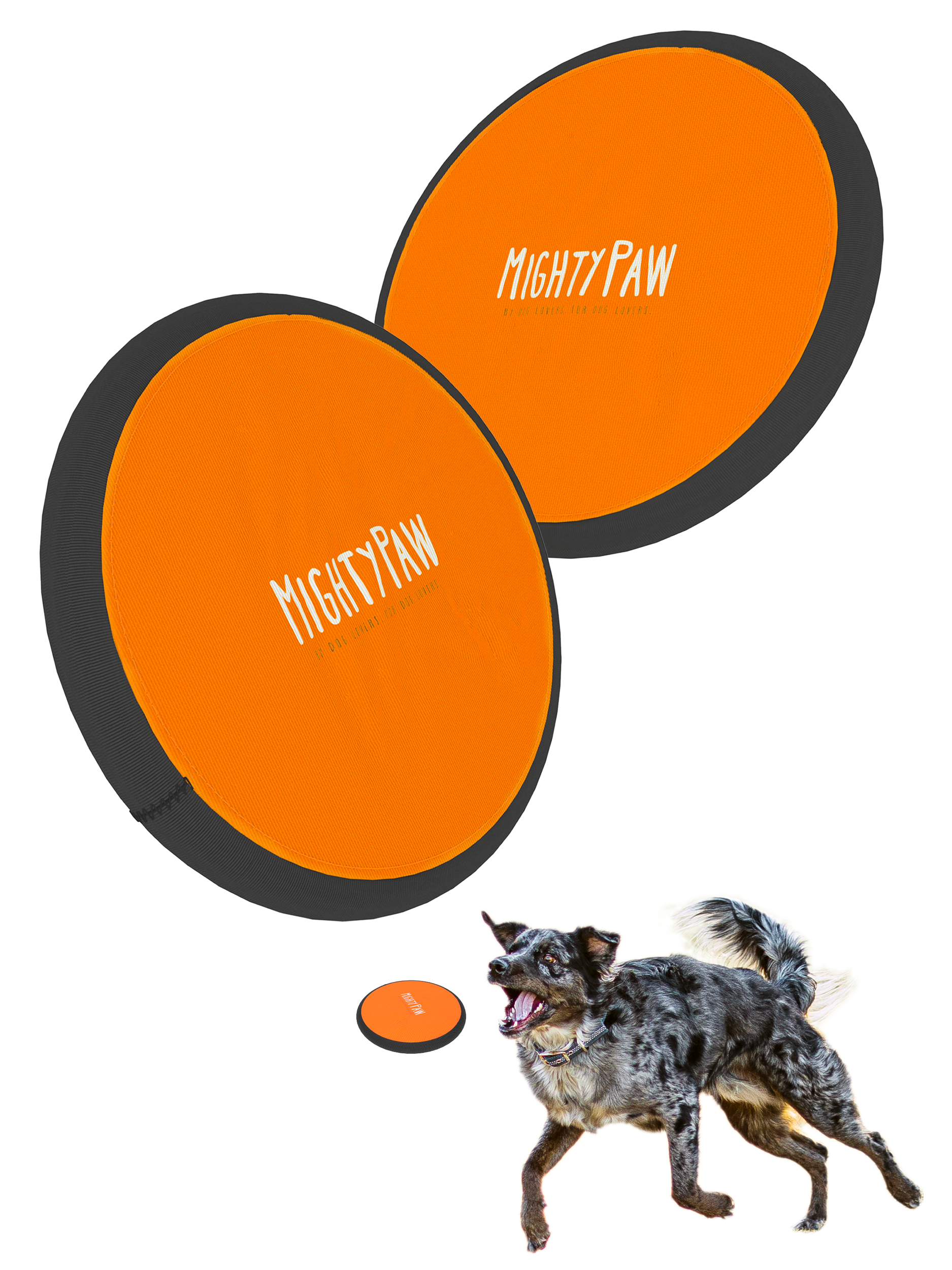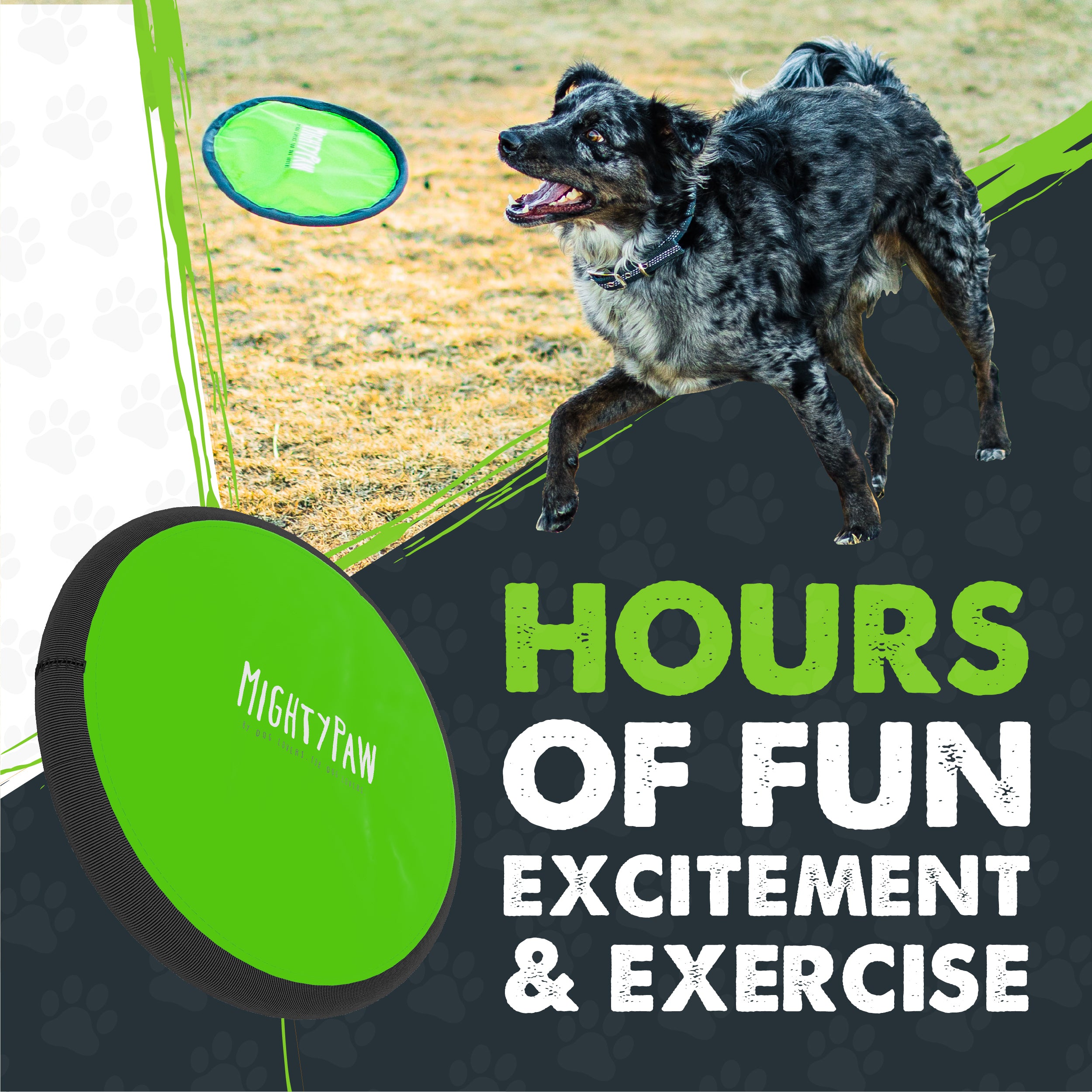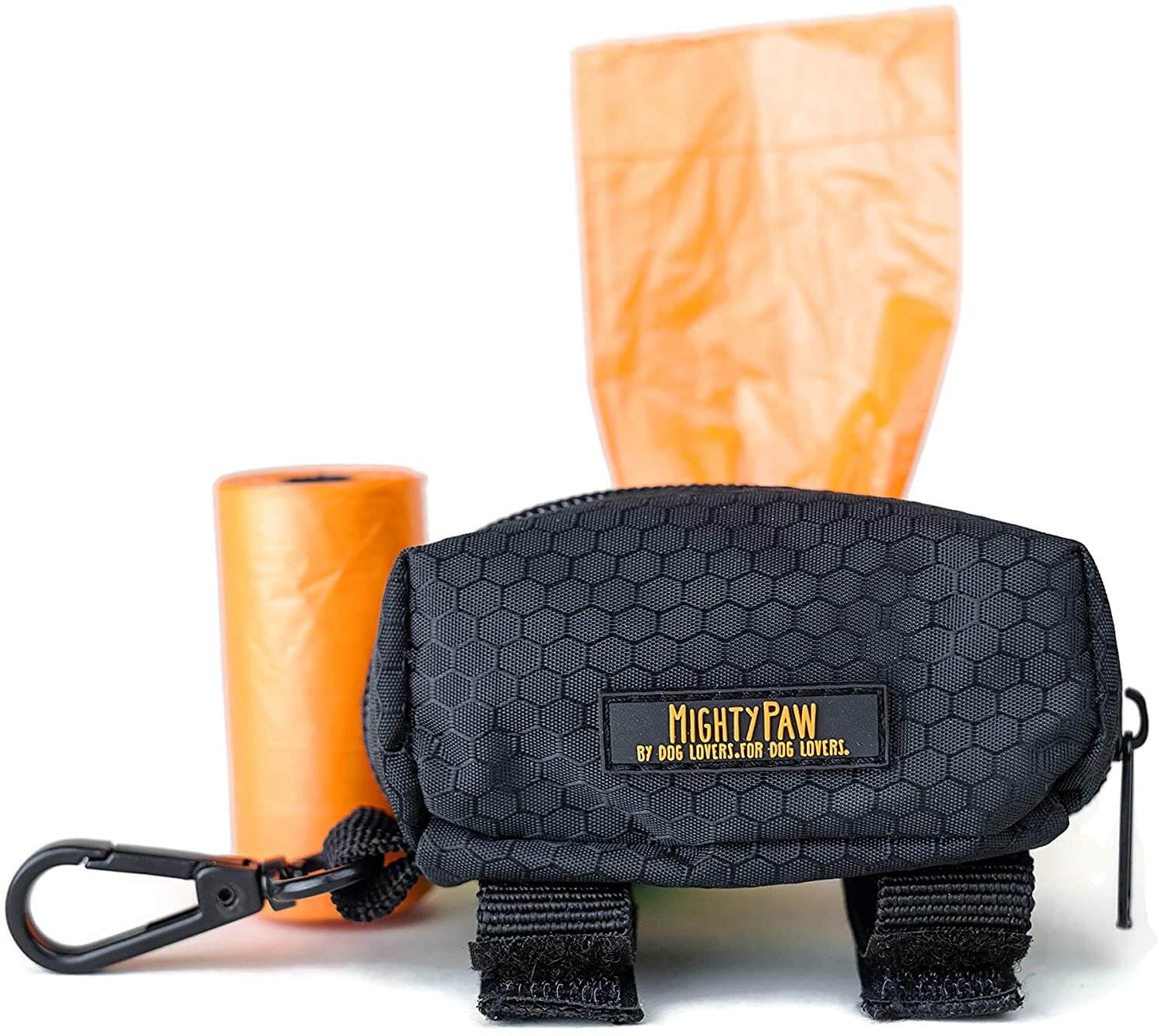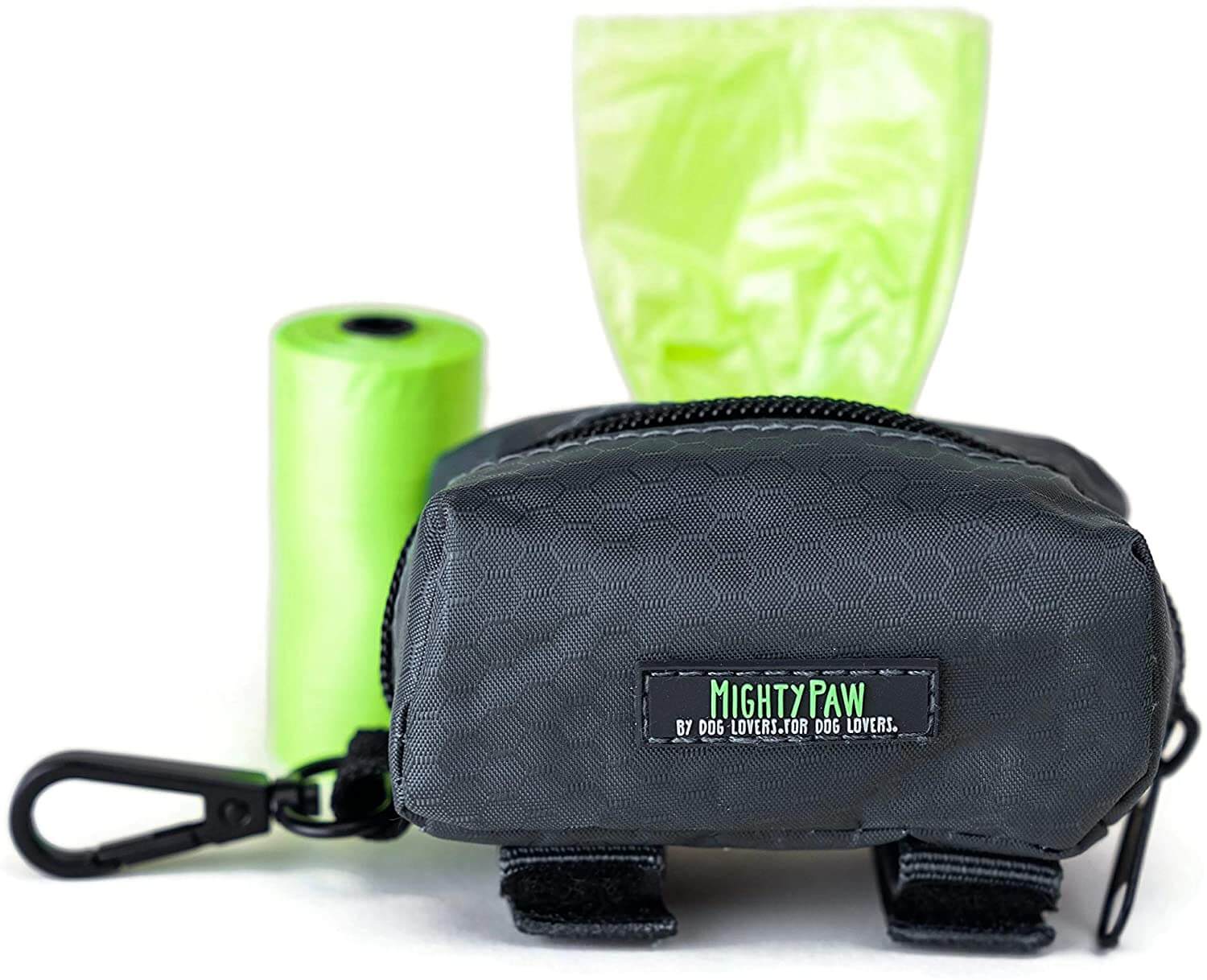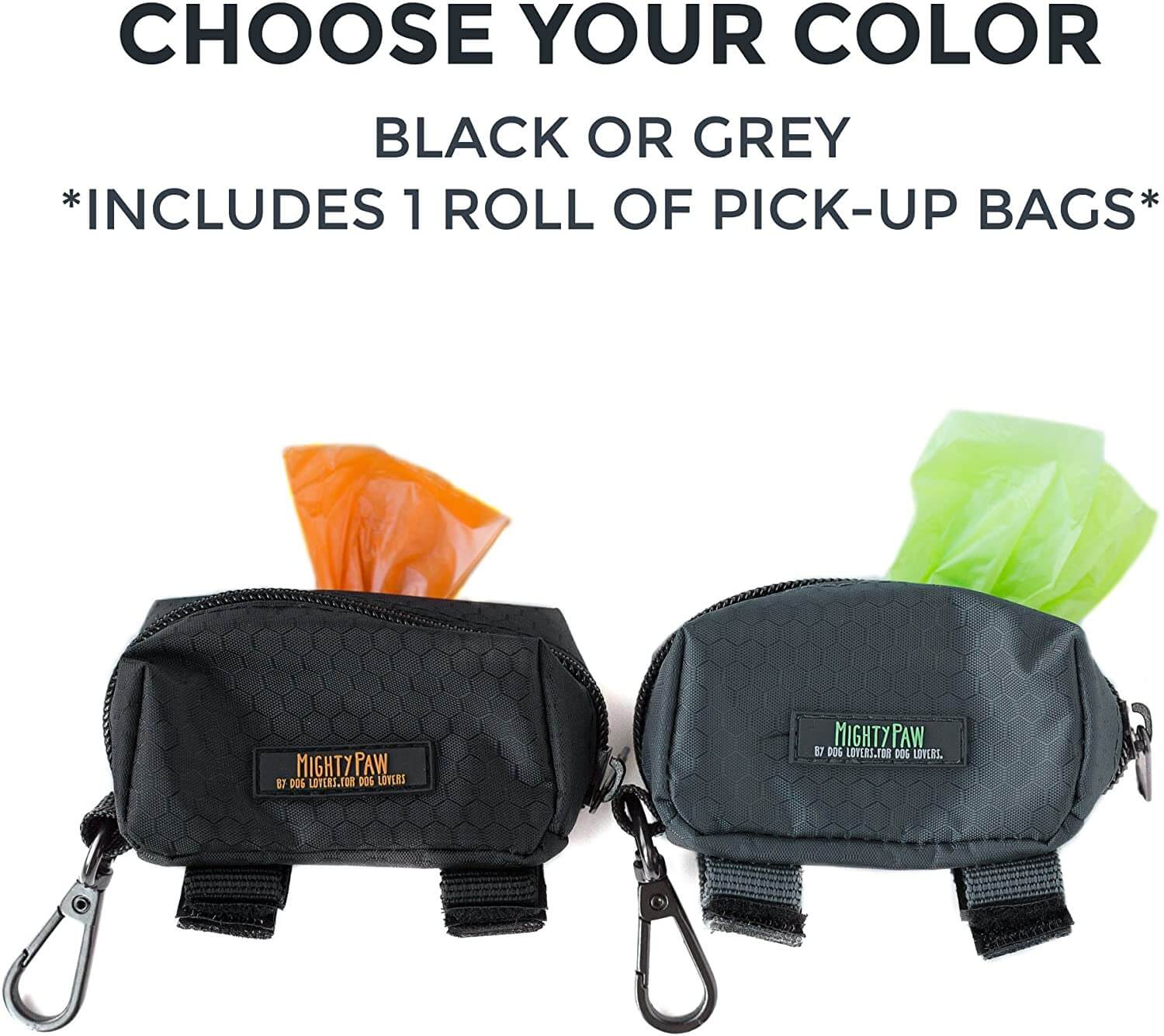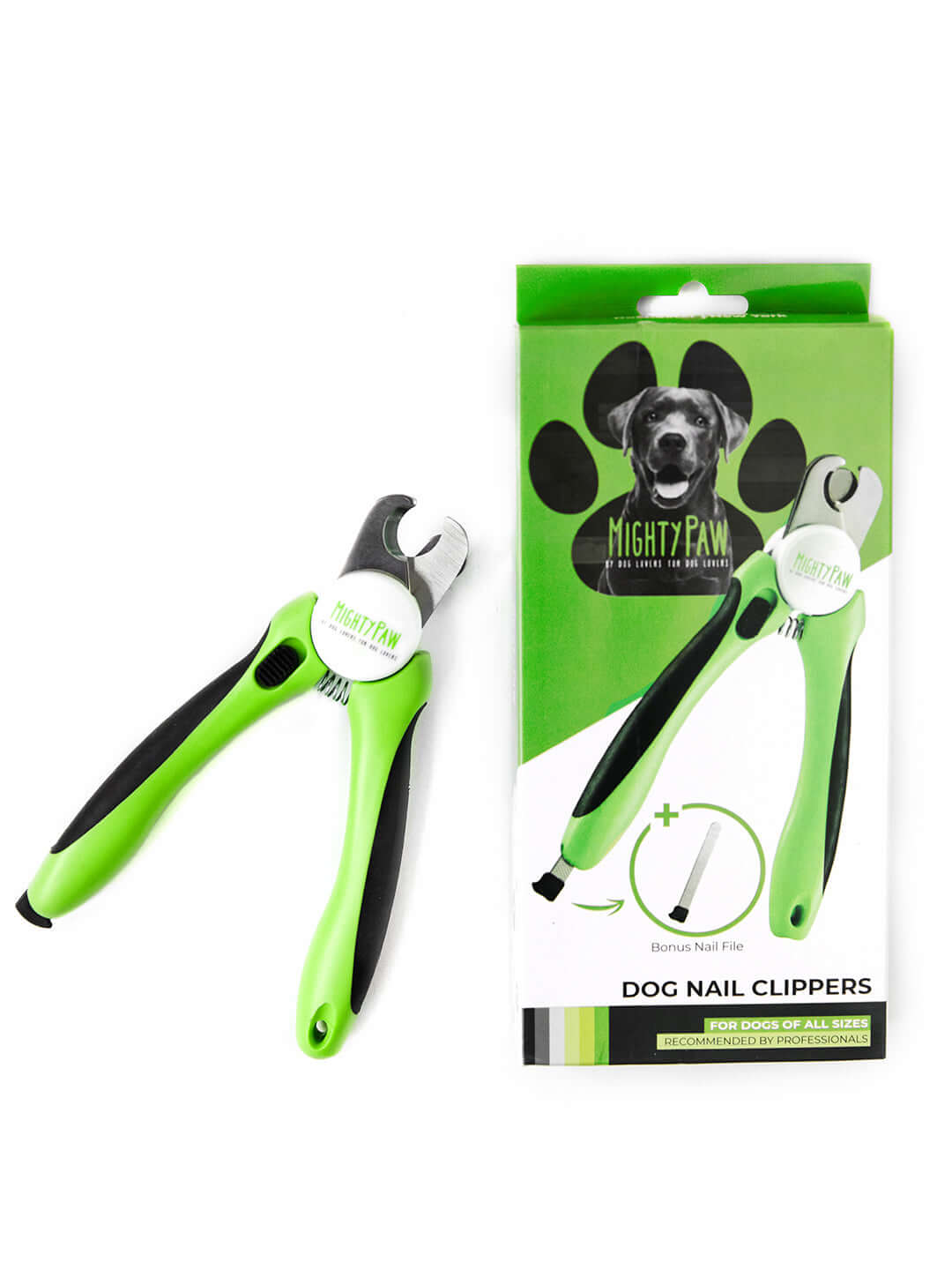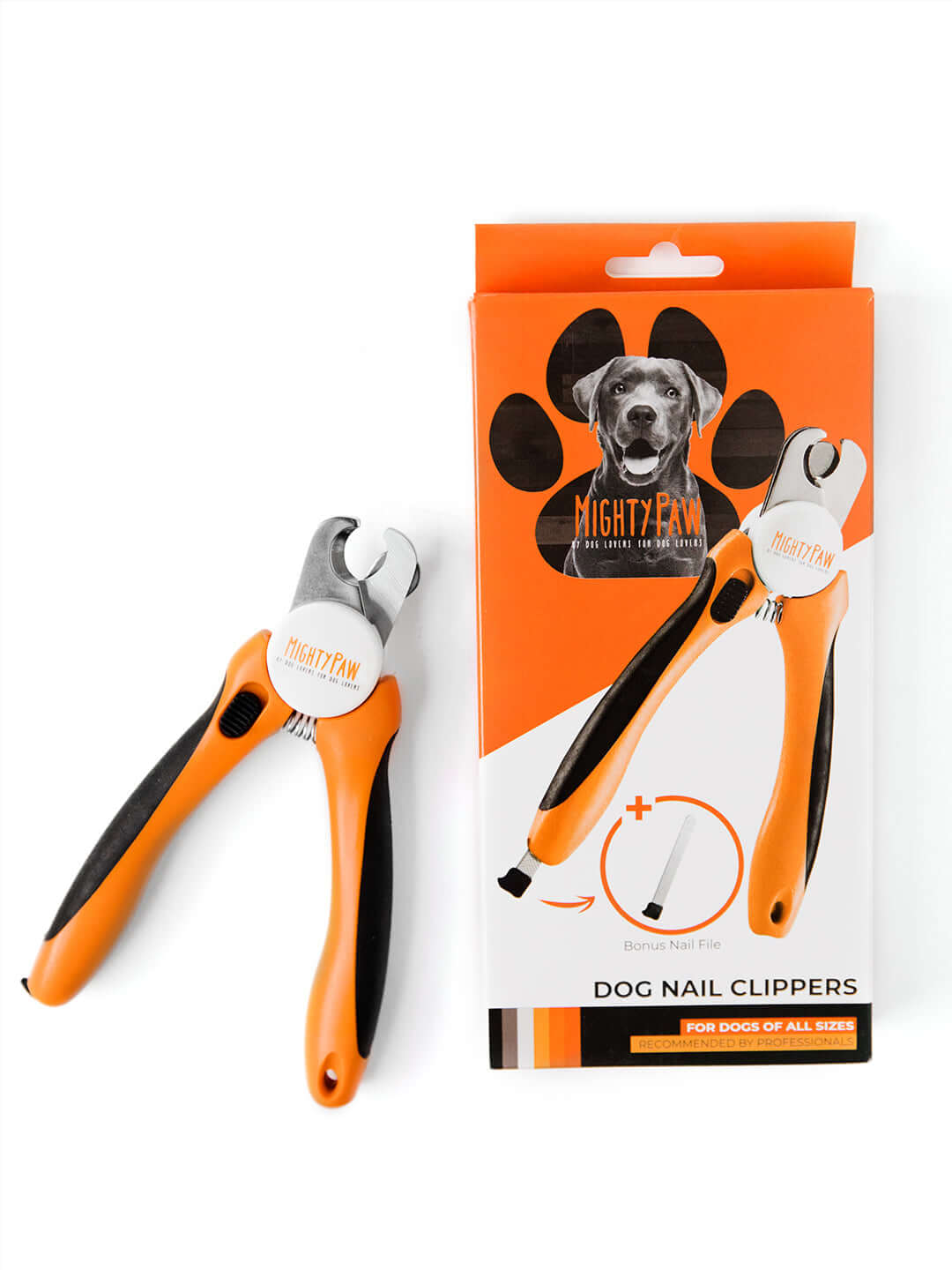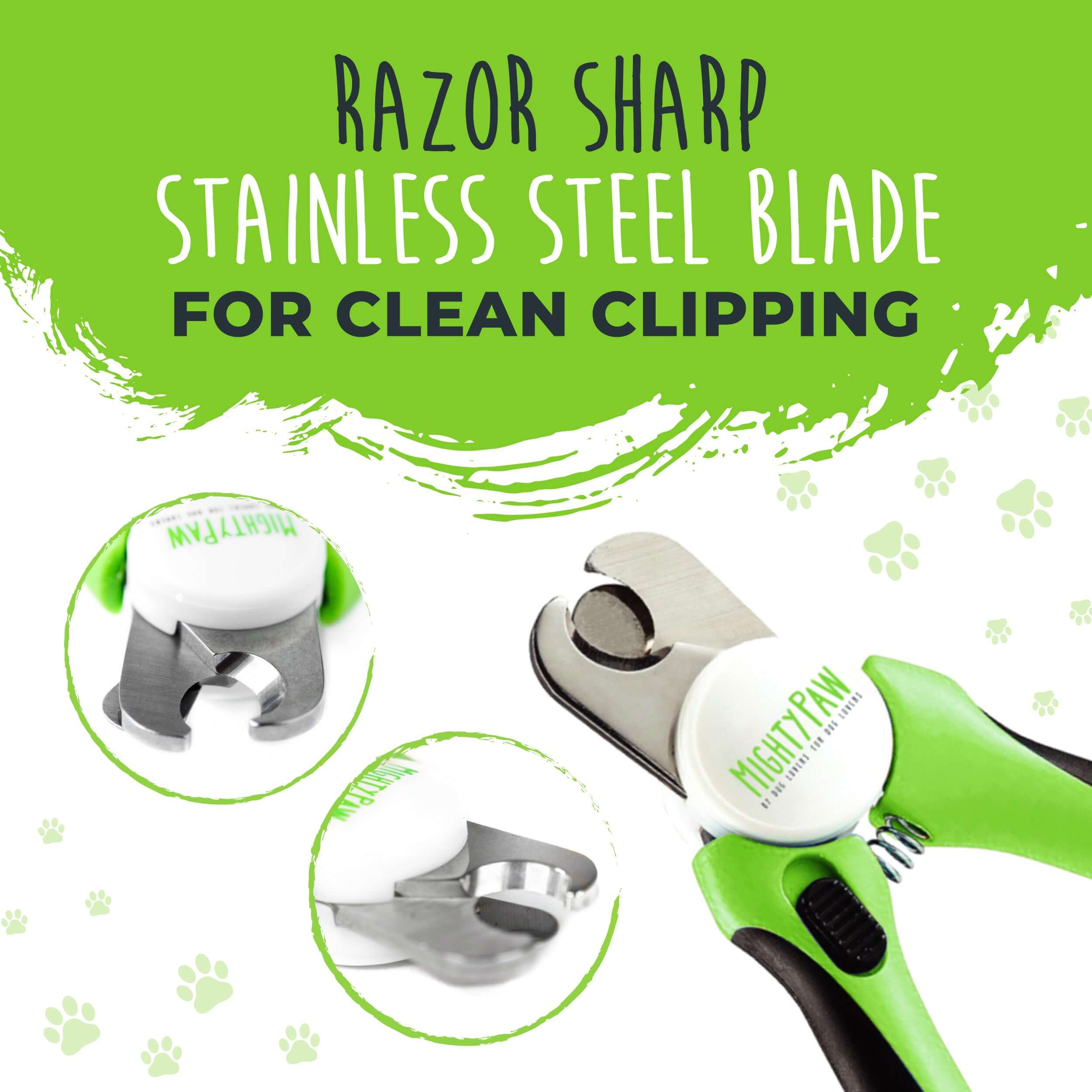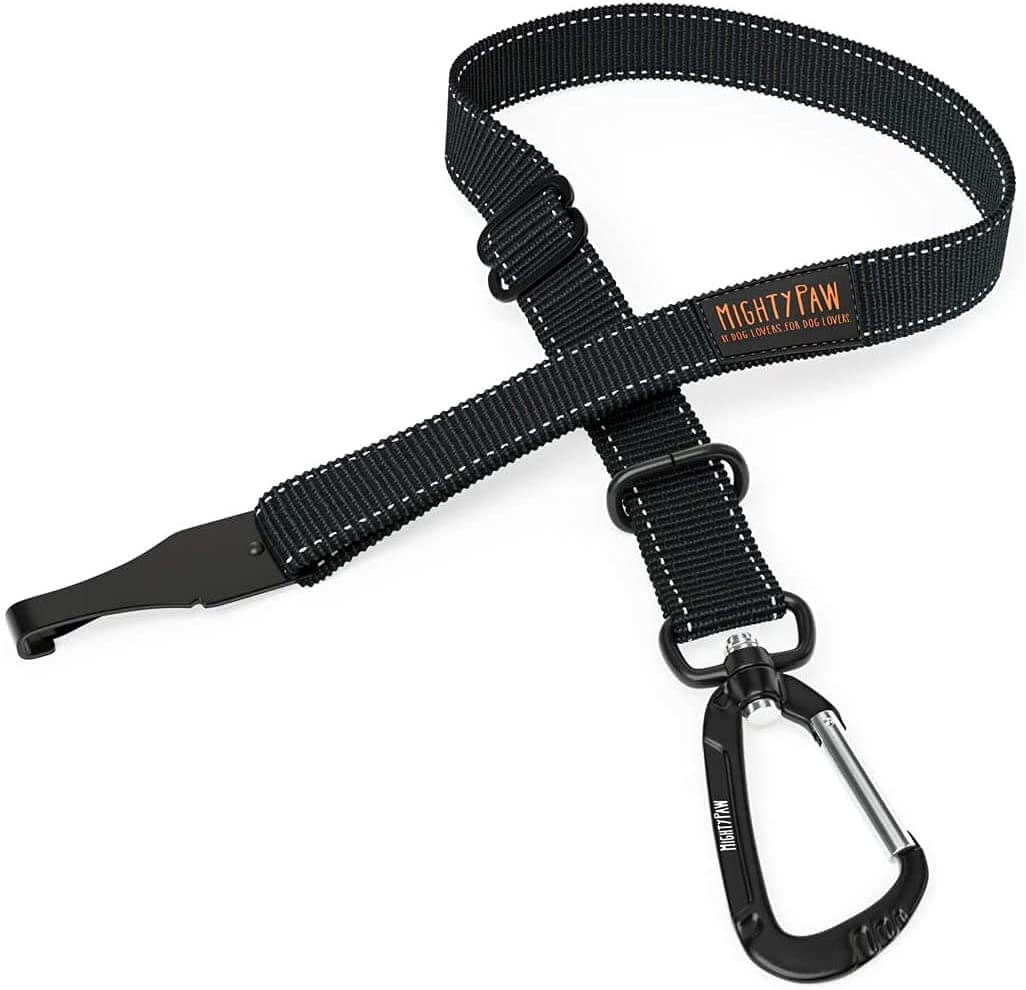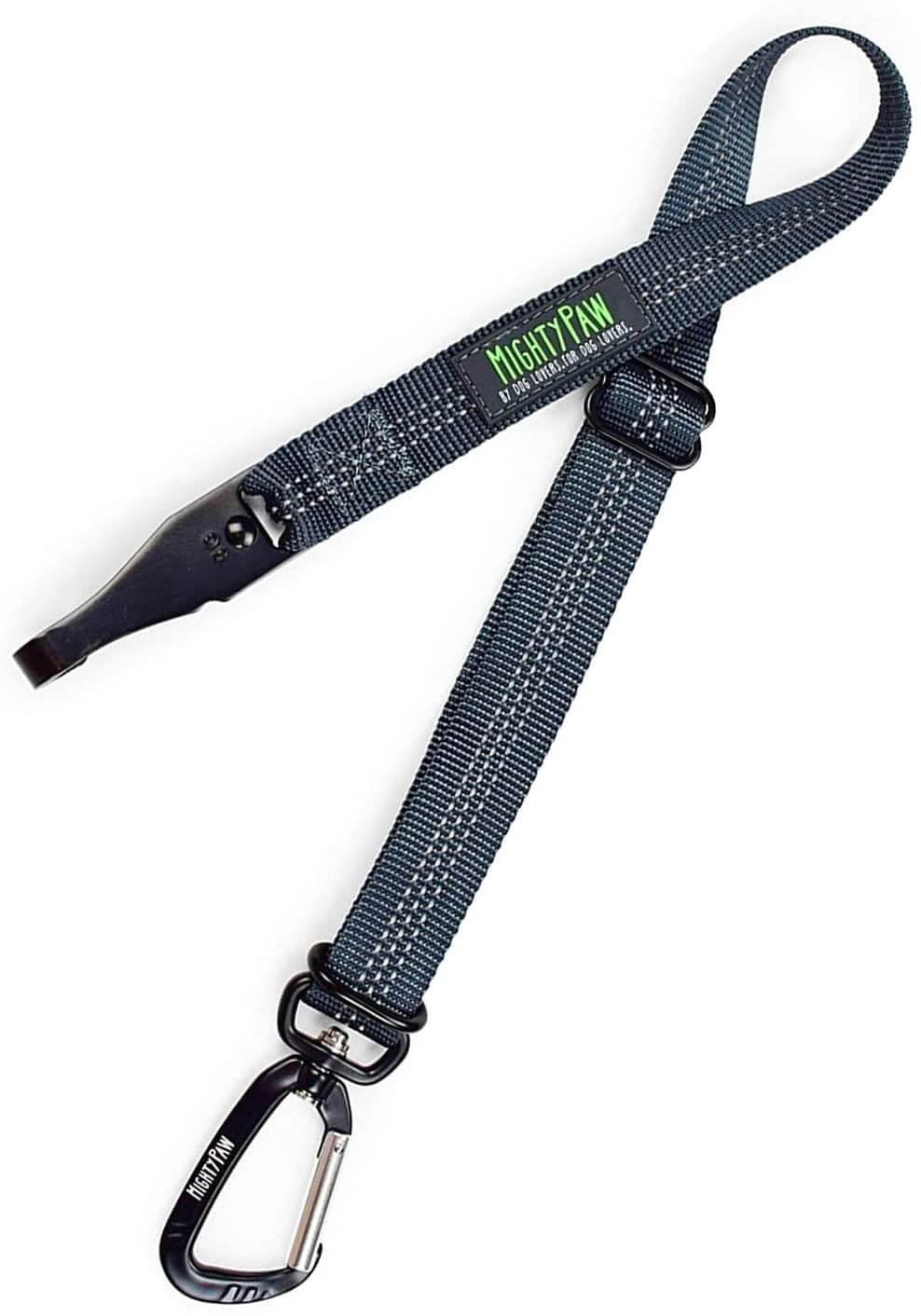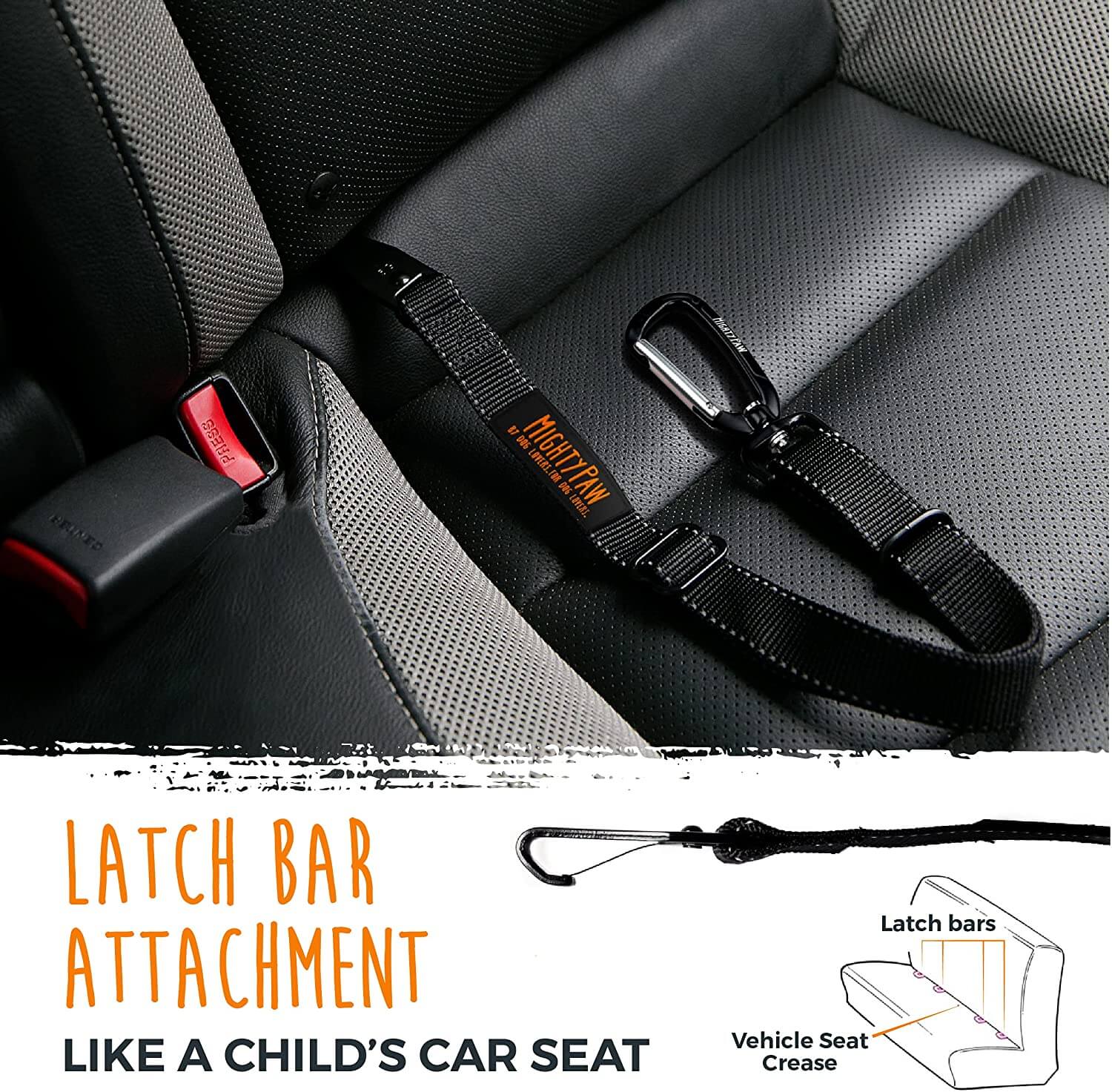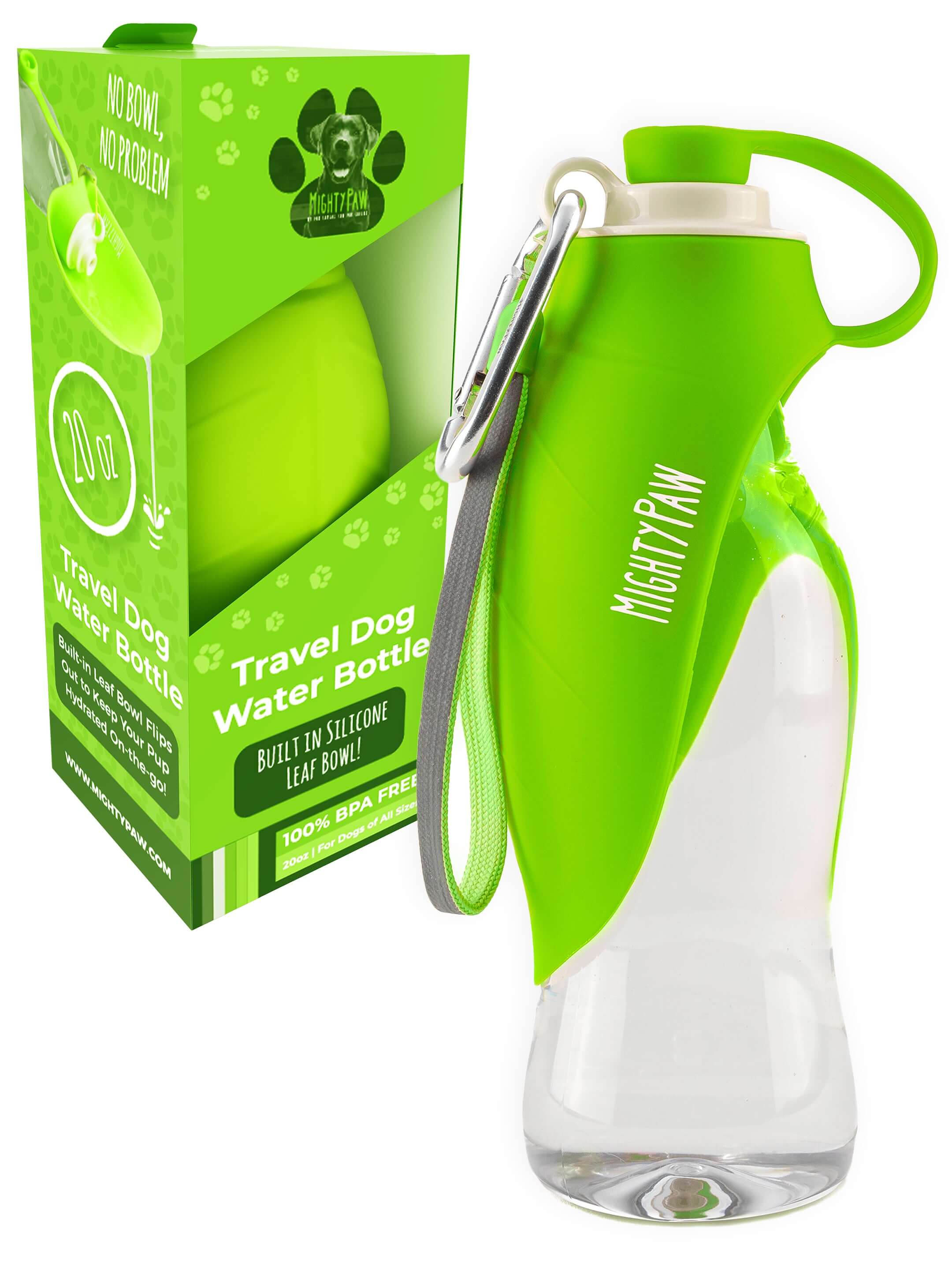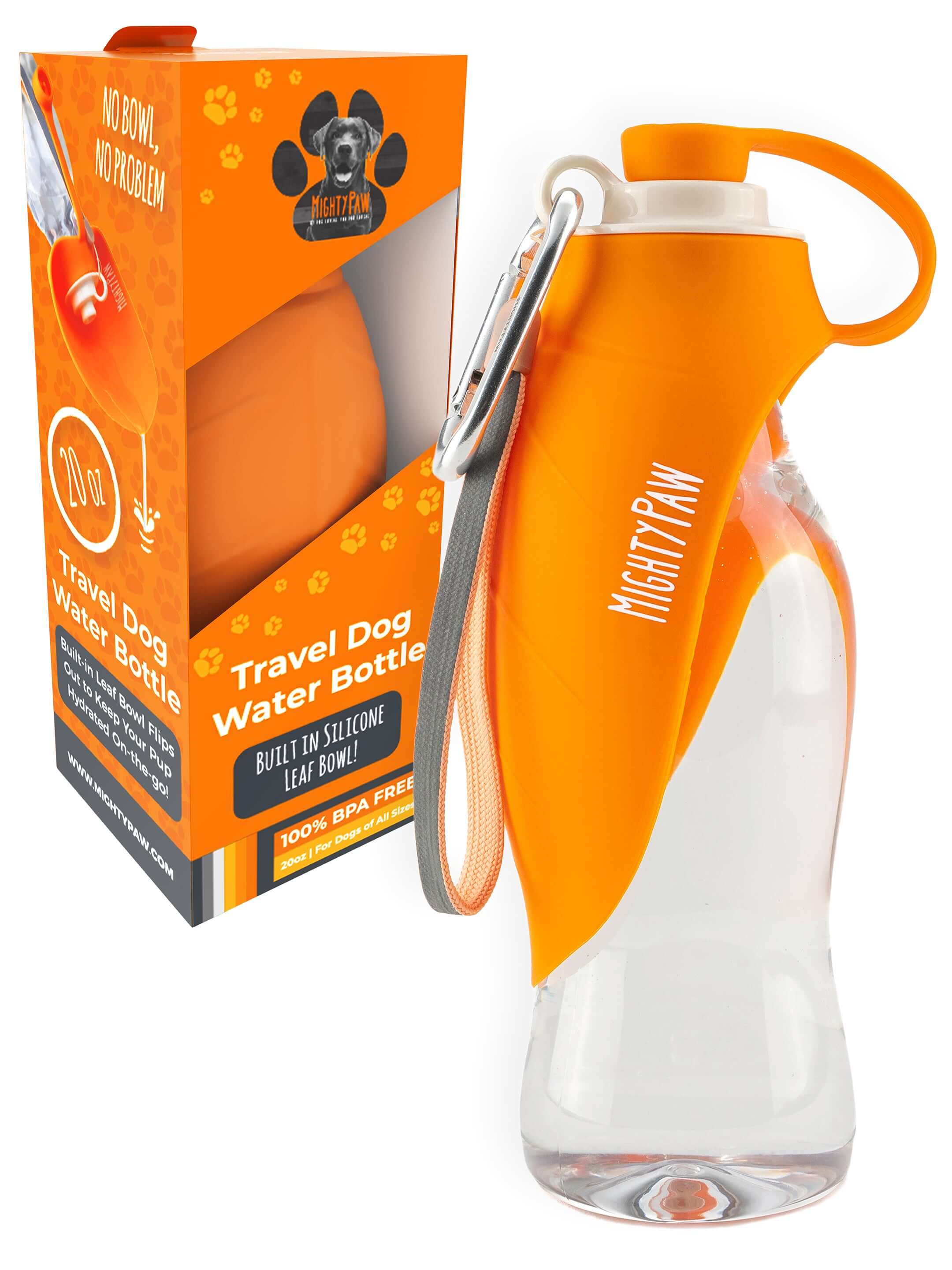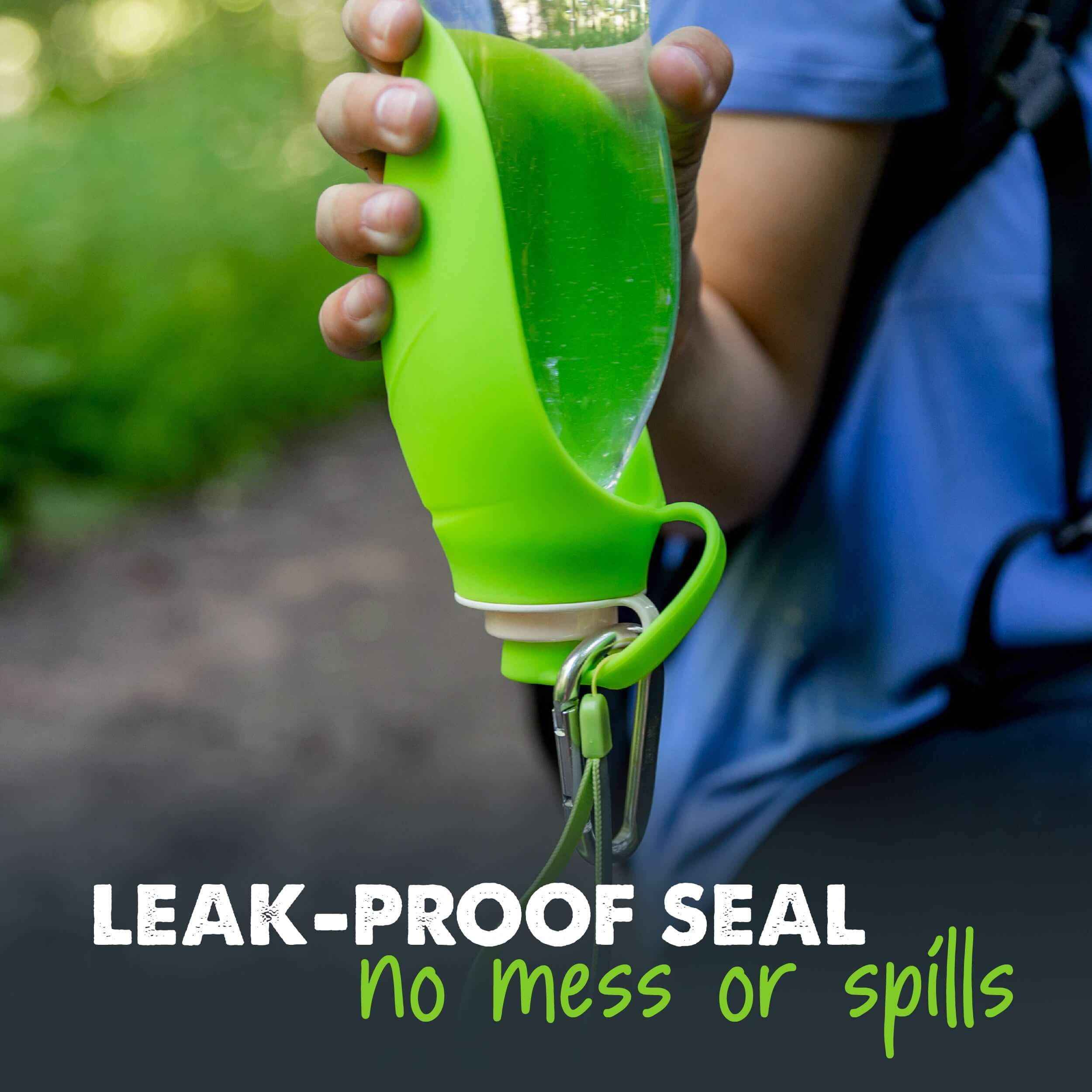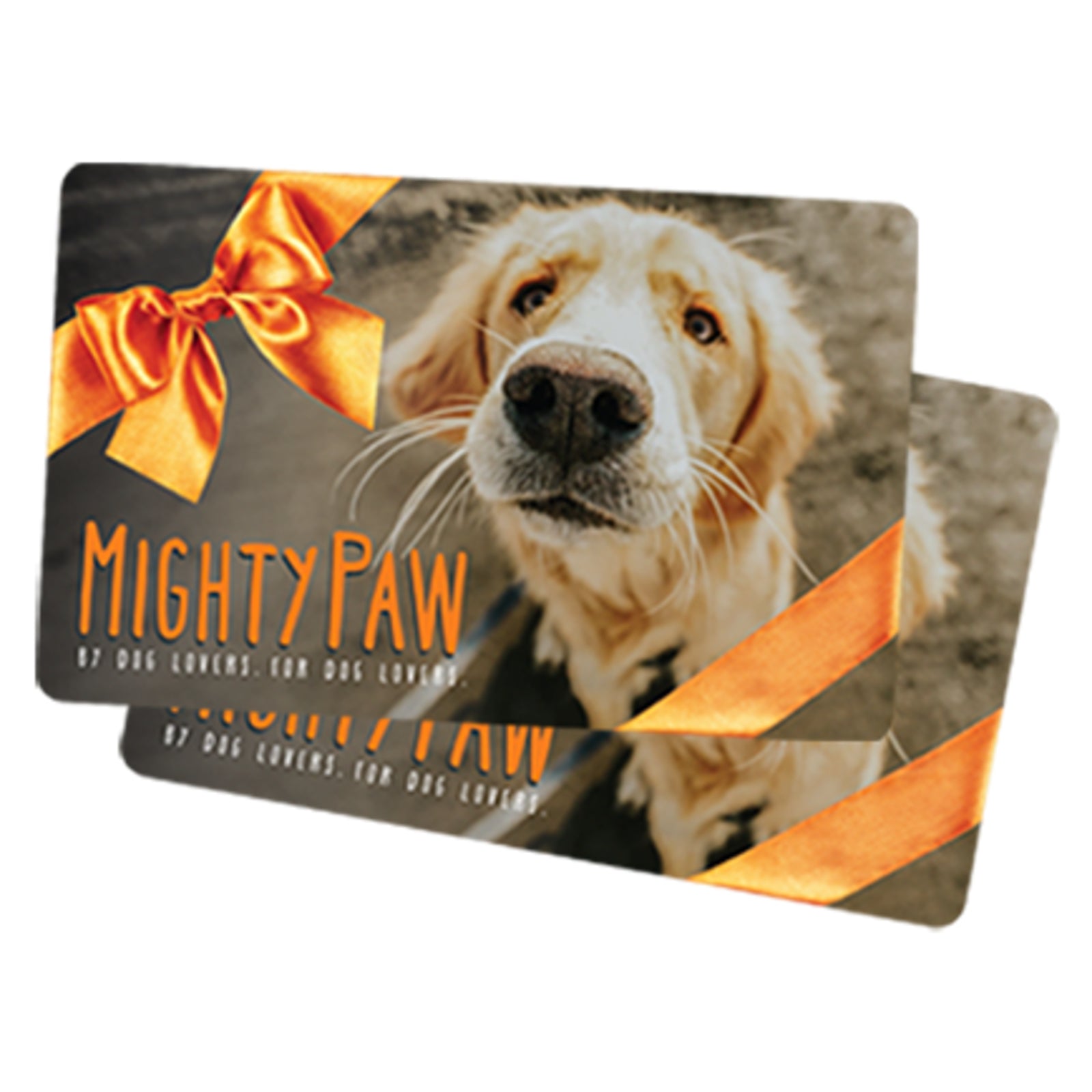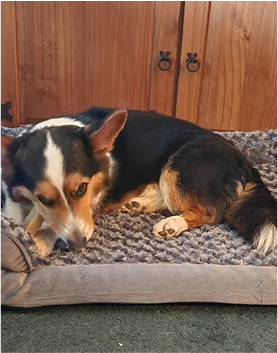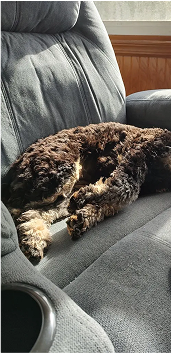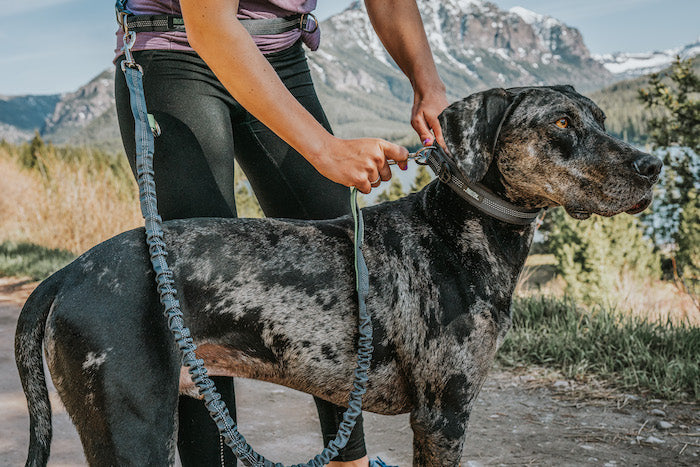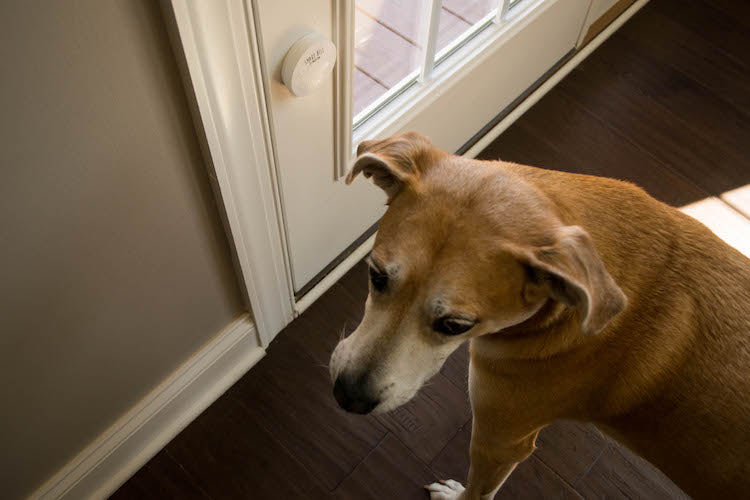Hi, Mighty Paw fam, Barbara here! Today I’d like to give you some helpful tips to train your dog with a long leash, specifically using Mighty Paw’s extra long dog leashes.

Reasons to use extra long leashes for training
Their extra length makes dog training more efficient and less frustrating, especially when we’re working on advanced skills like off-leash obedience training, including the recall and staying at a distance.
That’s because they provide:
- Off-leash feel with total control
- Freedom in a controlled training environment
- Line of communication between the dog and her handler
Mighty Paw’s extra long dog leashes
Mighty Paw offers three long training leashes, ranging in length from 15 ft to 30 ft:
*Now through Sunday (Aug. 9) use code: LongLeash20 for 20% off any of our long leashes!
The main difference between the long dog leash and the check cord is the material they’re made of (nylon vs rope) as well as the different design (handle vs no handle).
Mighty Paw Long dog leash features:
- Available in 2 lengths, 15 ft and 30 ft
- Waterproof, black nylon strap
- UV- and mildew-resistant
- Padded handle for added comfort
- Handle buckle opens to allow leash to be secured around trees, posts, tables, etc.
- Swivel-free clasp which prevents tangling
- Nickel-plated hardware for added durability
Mighty Paw Check cord features:
- 30 ft long dog leash
- Bright orange color for high visibility in different environments
- Made with ¼” climber’s rope
- Floats when submerged in water
- Water-resistant for easy cleaning
- Reflective stitching for low light visibility
- Lightweight but durable
- No handle = Tangle-free design that won’t get caught on rocks or underbrush
10 ways to train your dog with an extra long leash
Start by clipping the long dog leash or the check cord to your dog’s collar or harness.
Hold them at first, then drop and let your dog drag the leash once you make progress in your training sessions.
Short training sessions paired with high value treats
Tip: Aim for several daily sessions, but keep them short, just about 5-10 minutes at a time. That’ll keep your dog engaged and interested.
I also recommend bringing high value treats or a favorite toy as a reward for a job well done.
1. Teach your dog to come when called
Call your dog like “Wally, come!” and praise him for coming to you! If he’s distracted by something, gently reel him in with the long dog leash he’s dragging.
2. Teaching your dog to stay

Put your dog in a “down” or a “sit”, then tell him to “stay” while you’re slowly walking away from him. If he breaks his “stay”, use the long dog leash to gently guide him back to his original spot, then try again, but with a shorter distance.
3. Backyard activities
Attach the long dog leash to a tree, post, or table in your yard when you want to give your dog some more freedom, yet keep him safe at the same time.

4. Exercise & fetch
Safely exercise your dog when you don’t have access to an enclosed area like a yard or a dog park. For example, if you live in an apartment or you’re at a rest area on a road trip.
The 30 ft dog leash is particularly helpful for this because you can attach it to a tree or post.
5. Swimming
Attach the extra long dog leash to your pup’s harness when you’re taking him swimming in a lake, river, or the ocean. You’ll be able to reel him back in should you need to!
6. Puppy socialization
Puppies are most impressionable during their first 4 months, so getting them used to walking on a leash without pulling when they’re that young will really pay off later. A long dog leash is perfect for this endeavor, just make sure there’s no tension on the leash.
7. Hiking in open fields
Allow your dog extended freedom of movement to sniff and explore when you’re hiking in open fields. I suggest to be respectful of others when you’re hiking on narrow trails, at which point a short leash will work better.
8. Building up to off leash freedom
Let your dog drag the long leash or check cord around as though he is "off leash." Practice calling your dog and also praise him whenever he checks in with you or looks at you.
The long leash allows you to quickly catch your dog if needed while you work on your training and trust.
9. Nose work
Follow your dog’s nose while he searches for the target odor during nose work classes. You’ll walk behind him for this purpose, and you can either hold the long dog lead or drop it.
10. Gundog training
Extra long leashes for dogs are used to teach hunting dogs specific commands and enforce obedience in rough hunting terrain. The 30 ft check cord is perfect for this because of its bright orange color and it is designed not to catch on brush!
Good luck with your training!
Barbara Rivers writes regularly for Mighty Paw. She is a blogger, raw feeder and dog walker and maintains the blog K9s Over Coffee.

